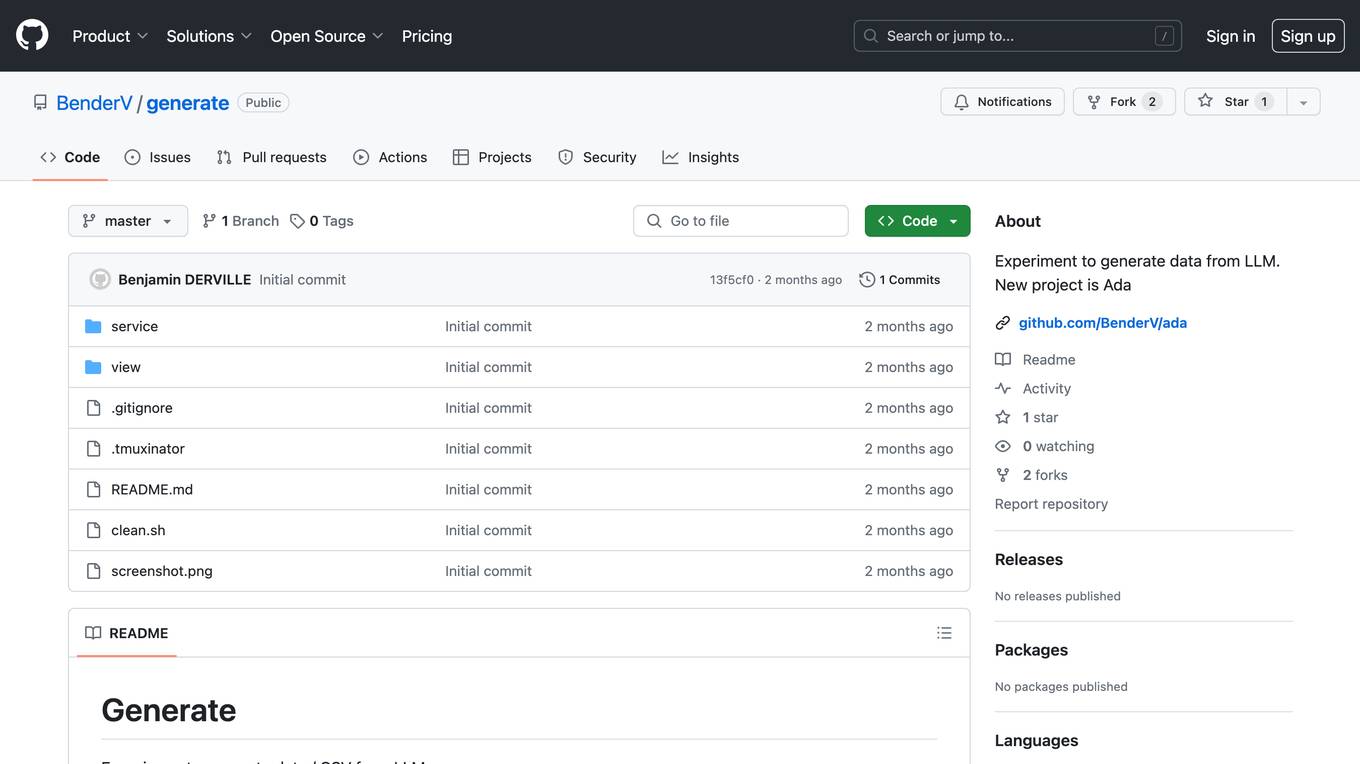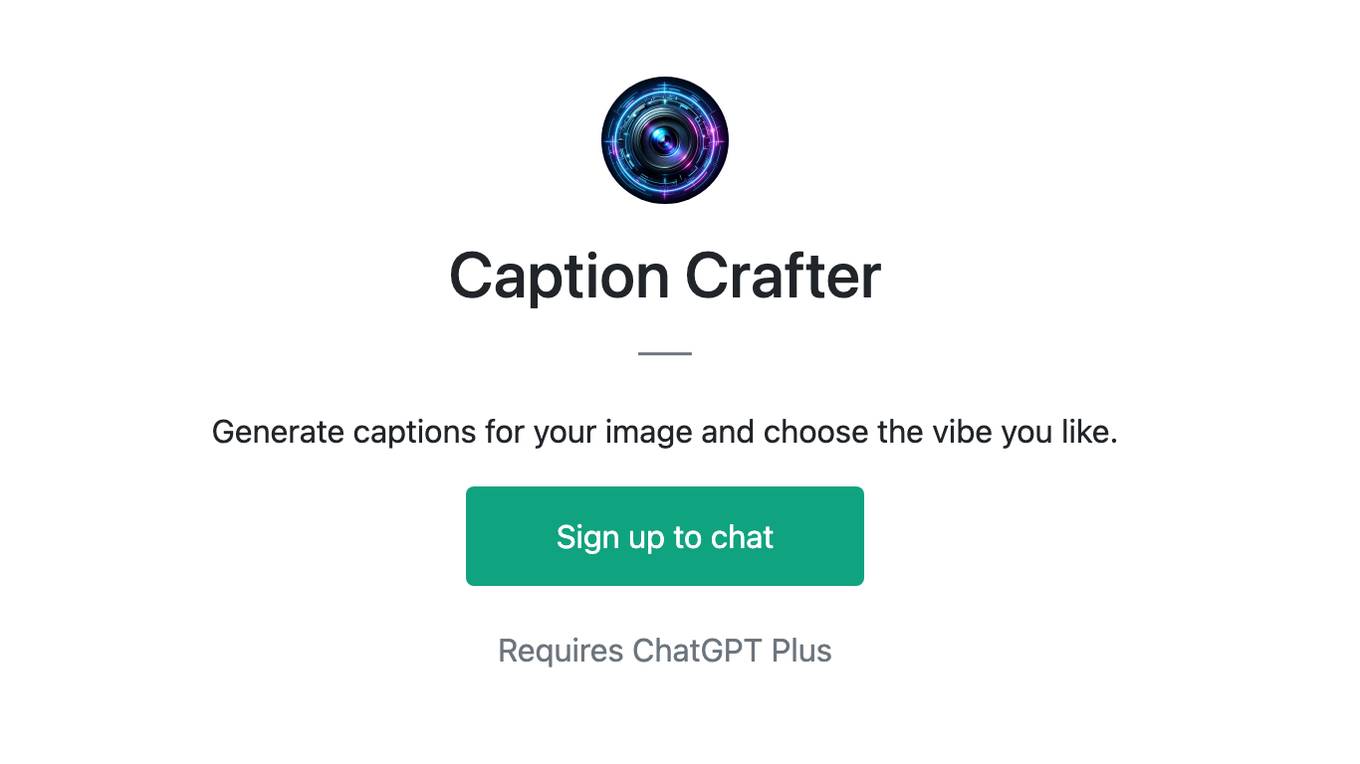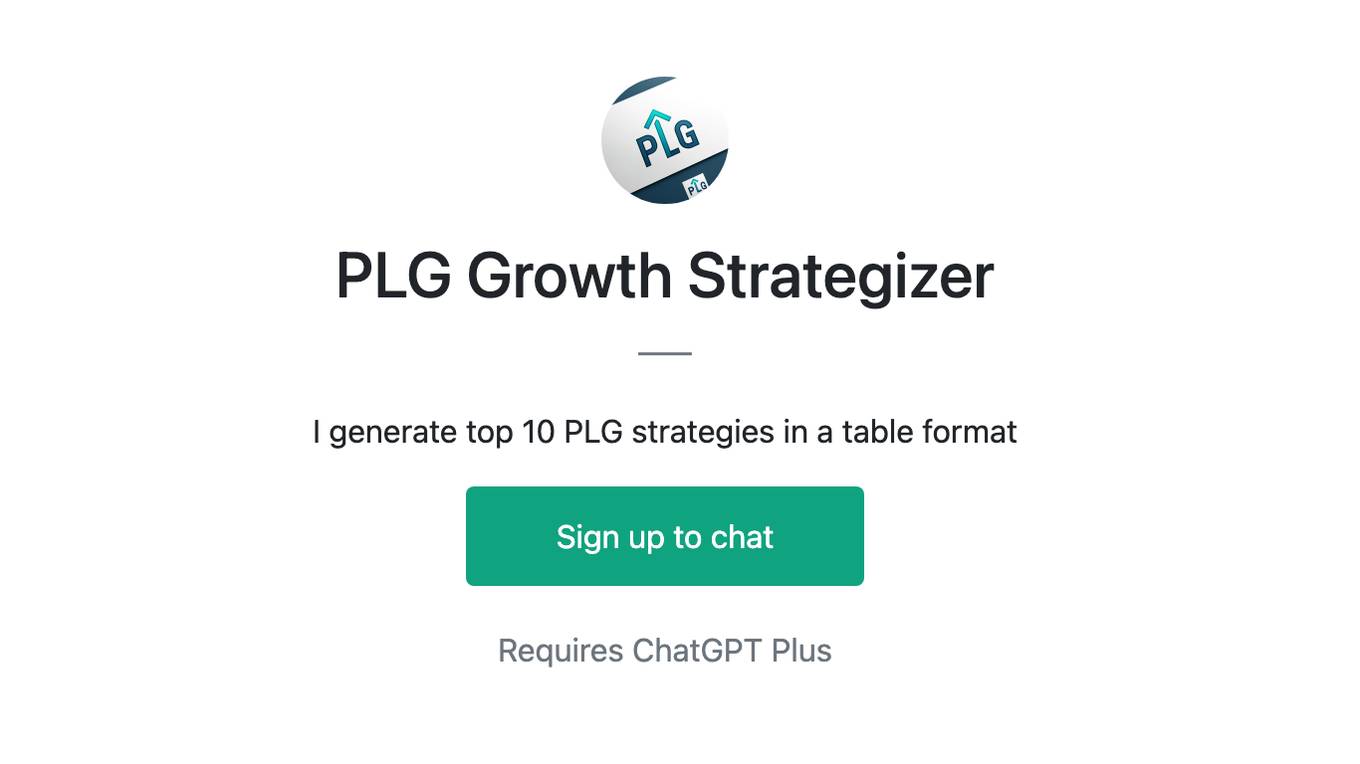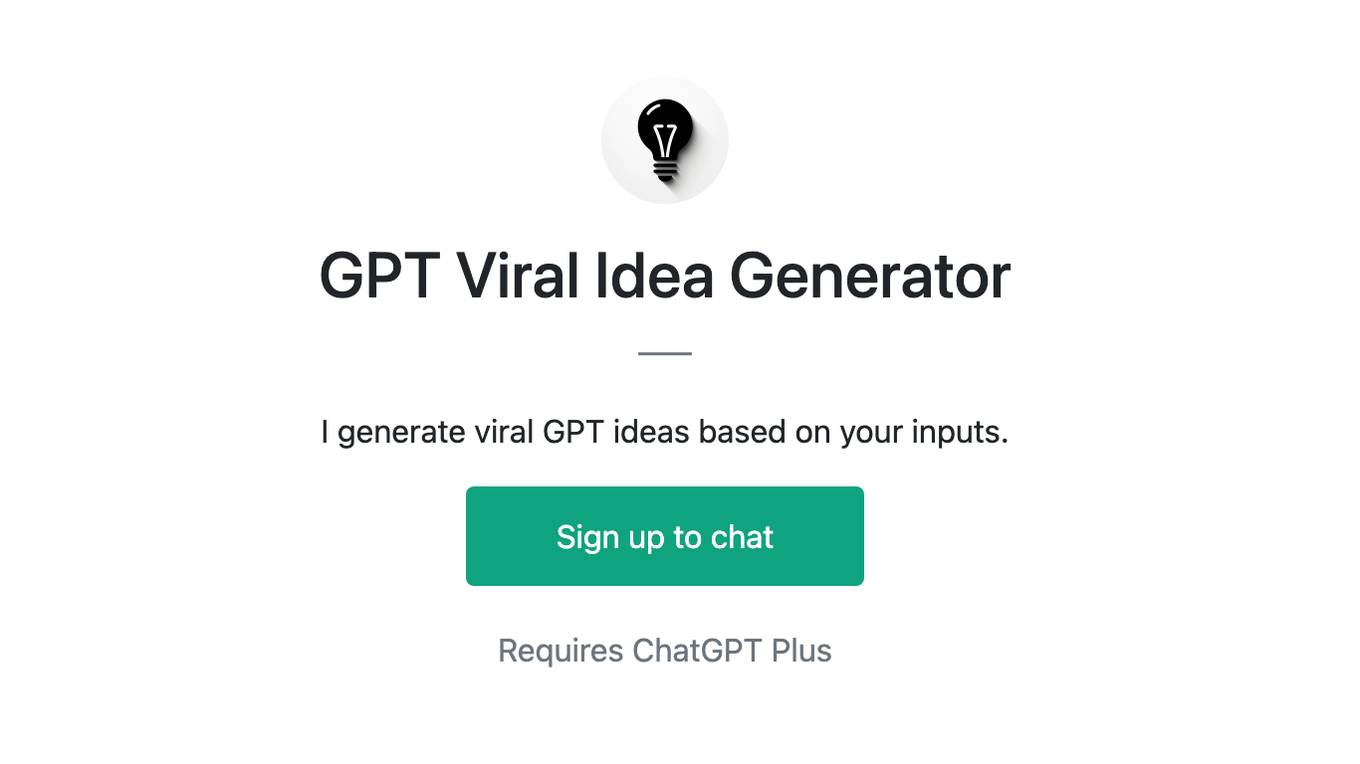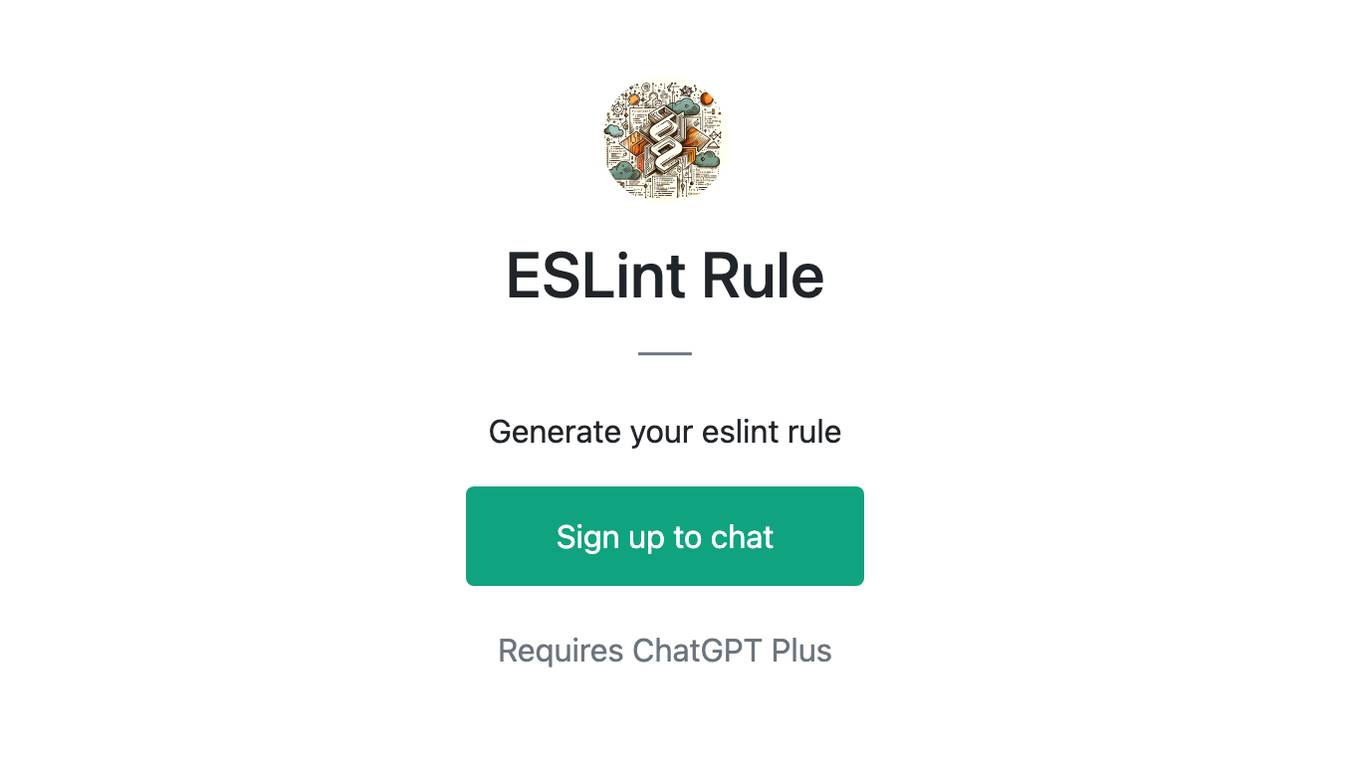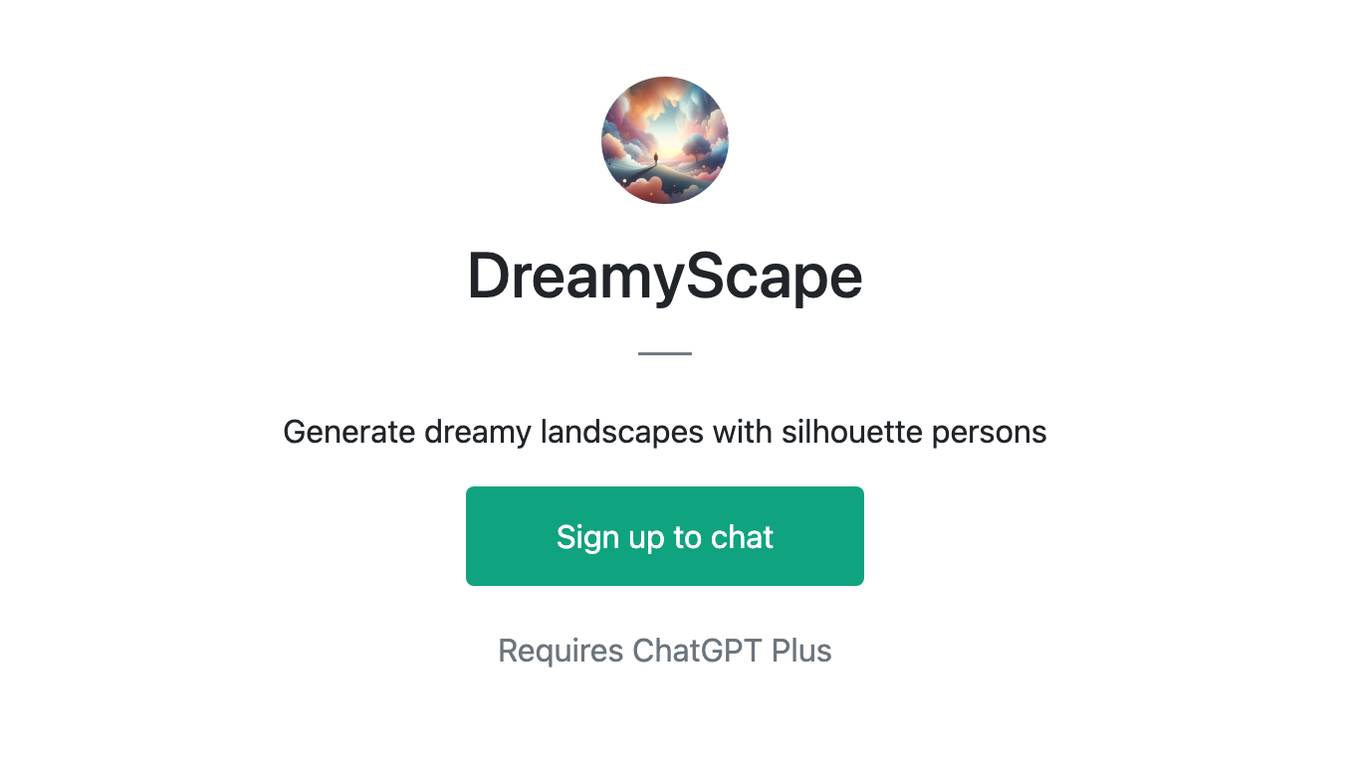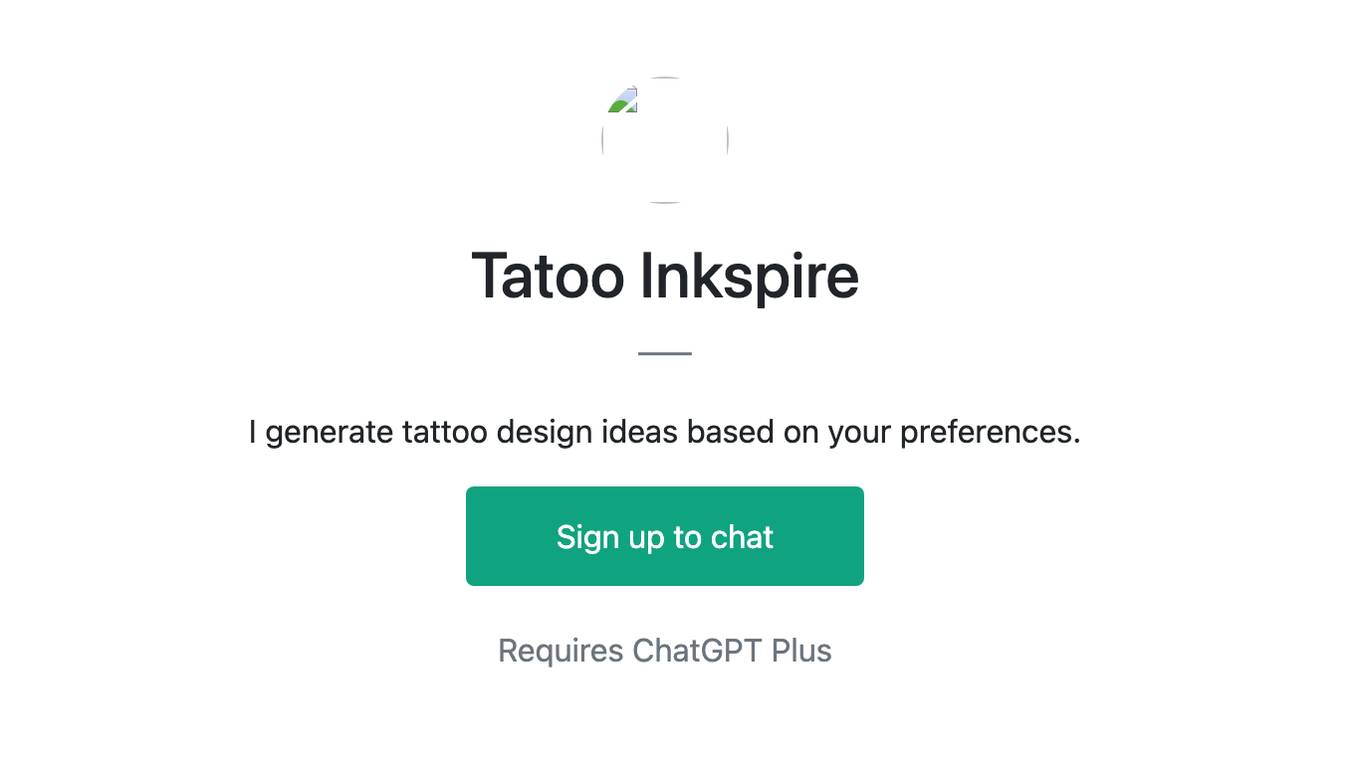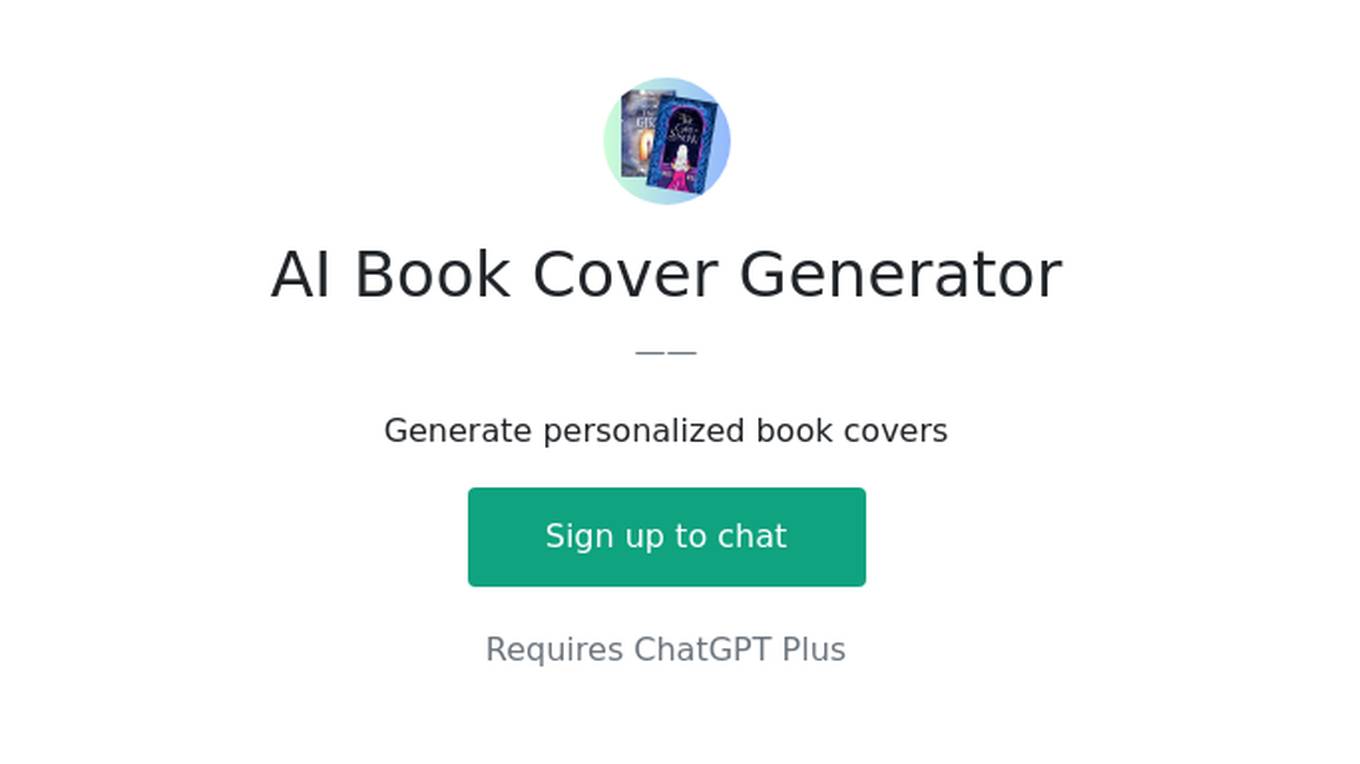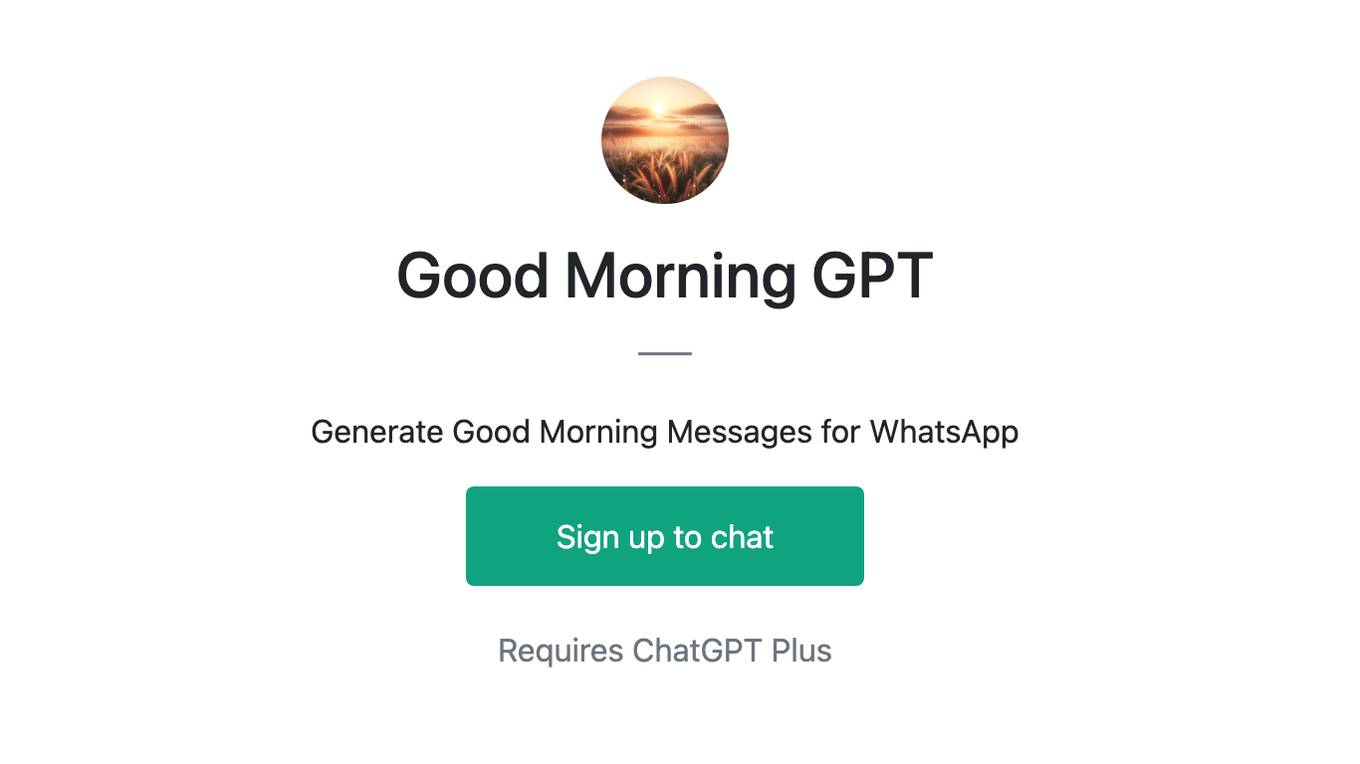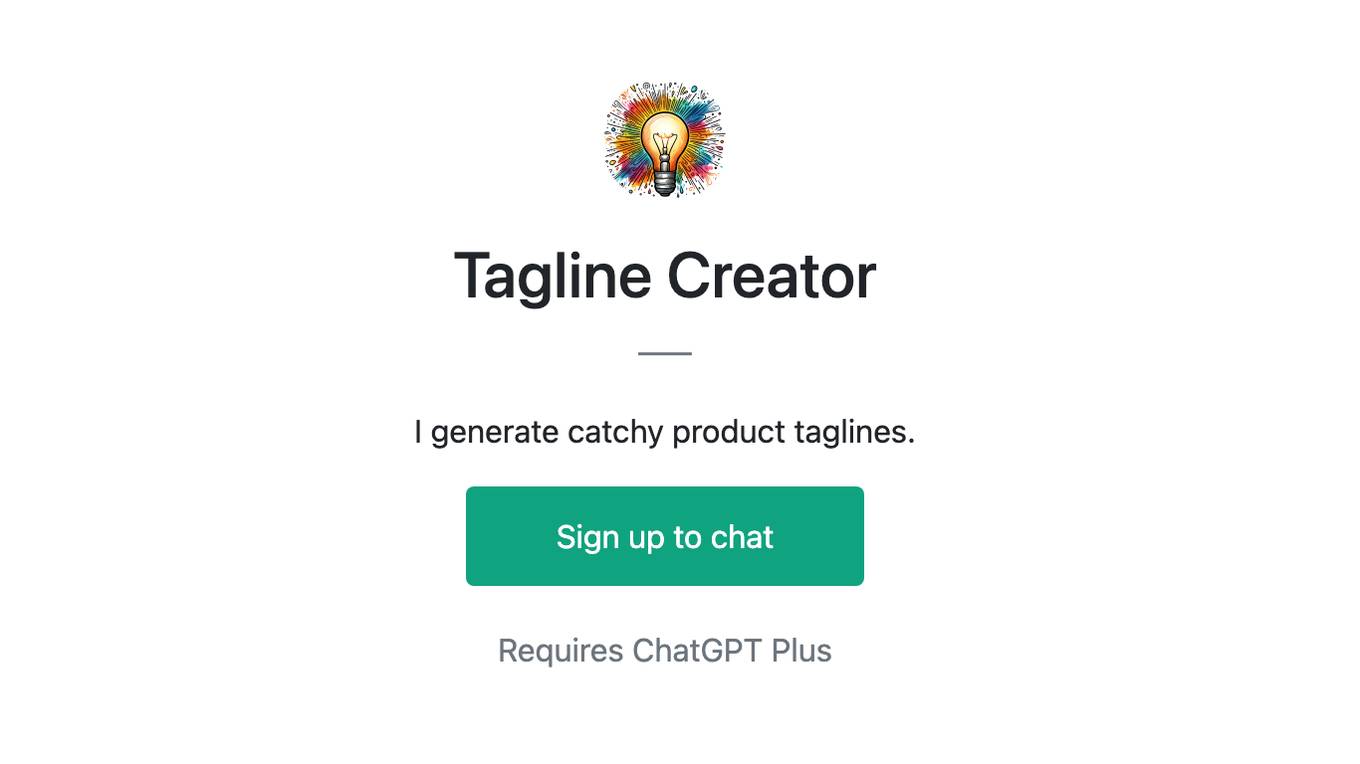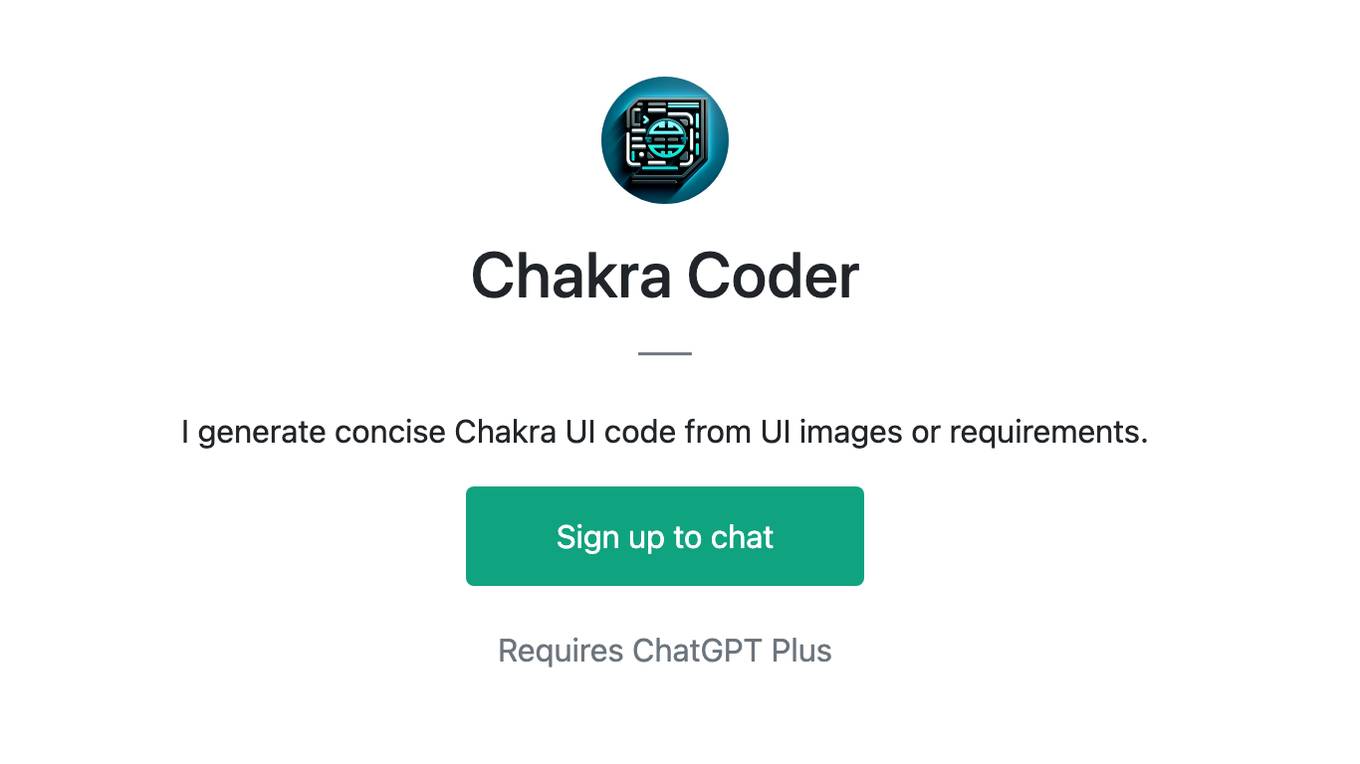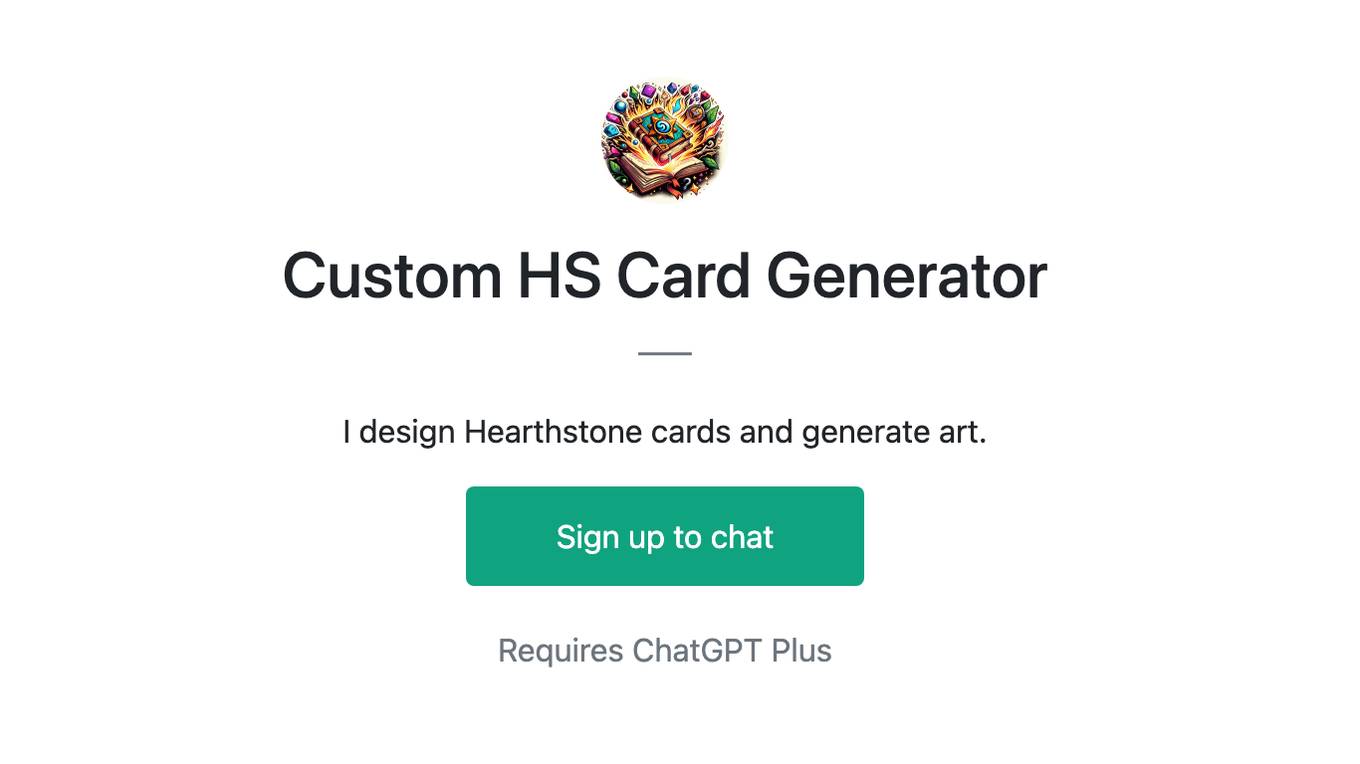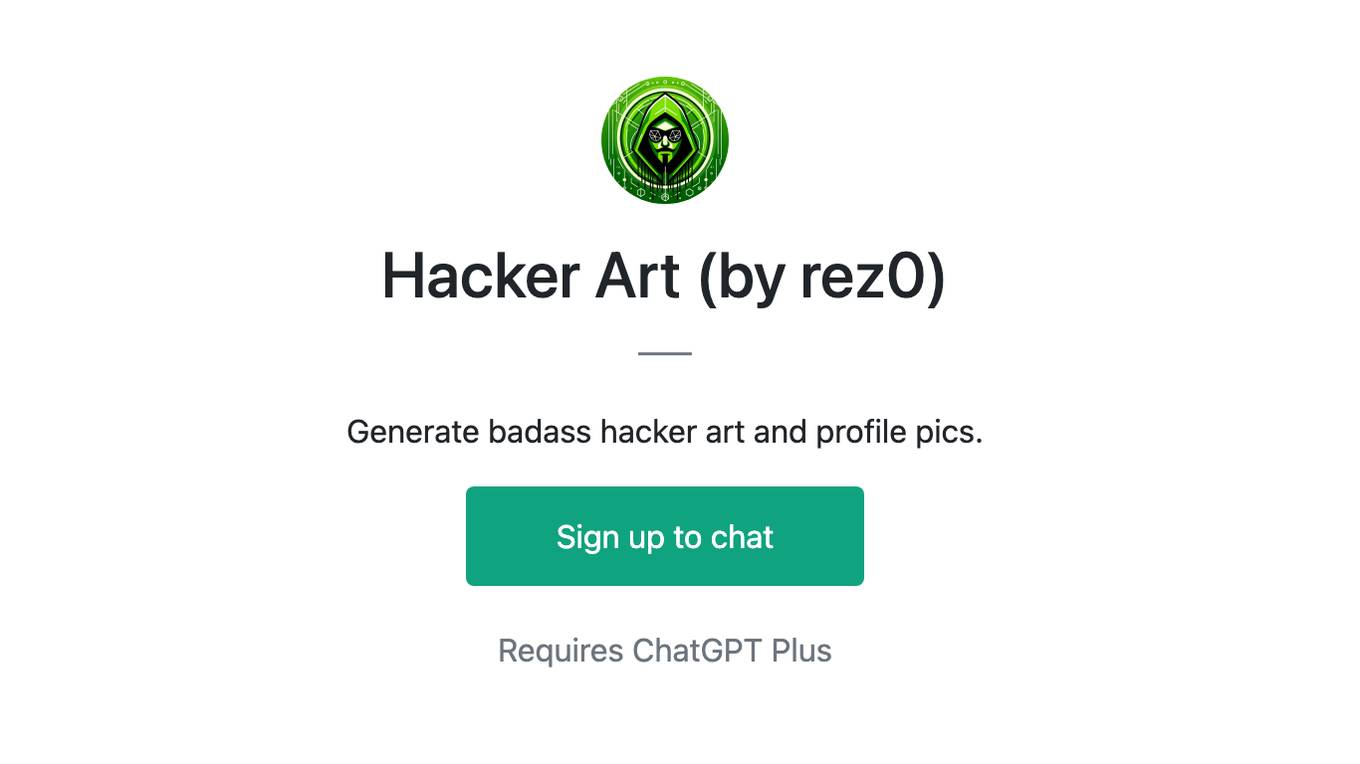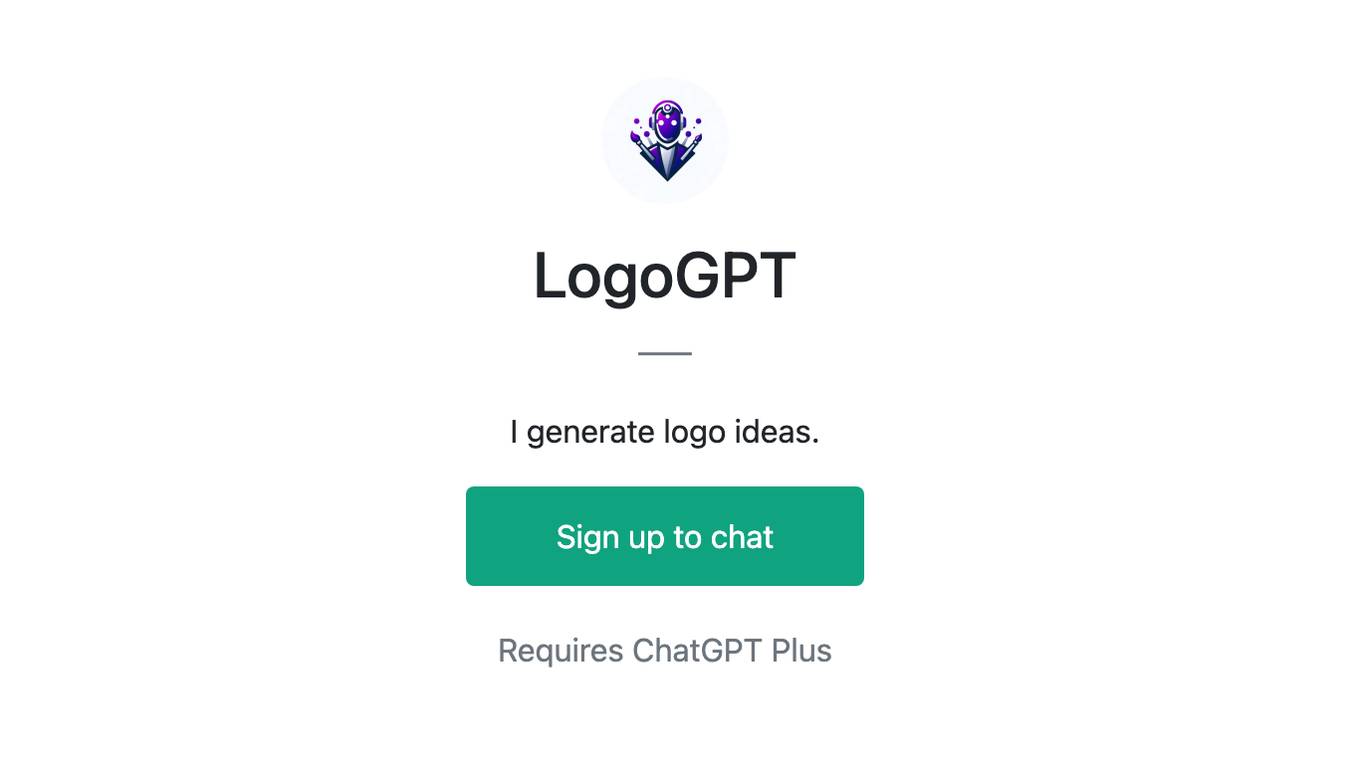Best AI tools for< Generate Push Notifications >
20 - AI tool Sites
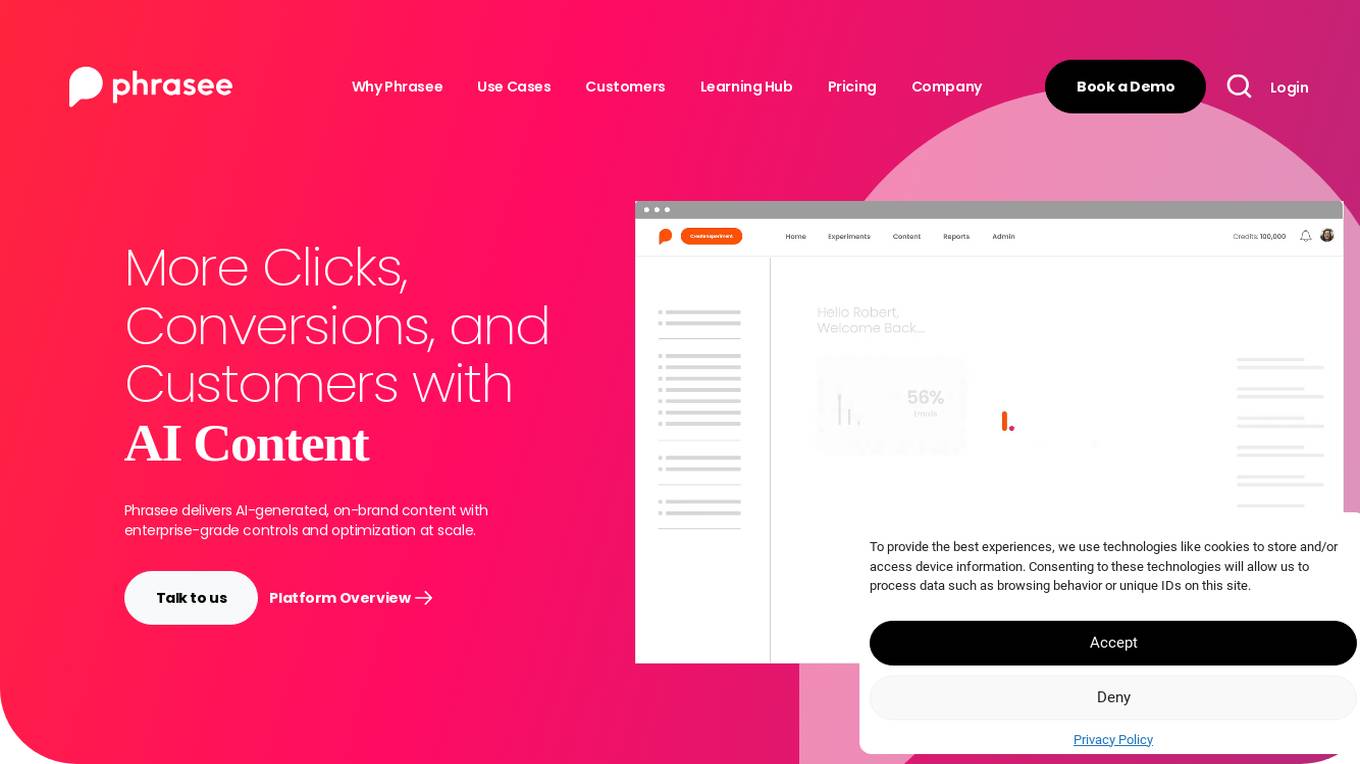
Phrasee
Phrasee is a generative AI platform that helps enterprise marketers create and optimize marketing messages across various channels, including email, SMS, push notifications, web and app, and social media. It uses AI to generate billions of marketing messages tailored to specific audiences and brands, ensuring consistent experiences and maximizing customer engagement. Phrasee's platform provides marketers with tools for testing, optimizing, and personalizing content, enabling them to improve performance, conversions, and ROI.
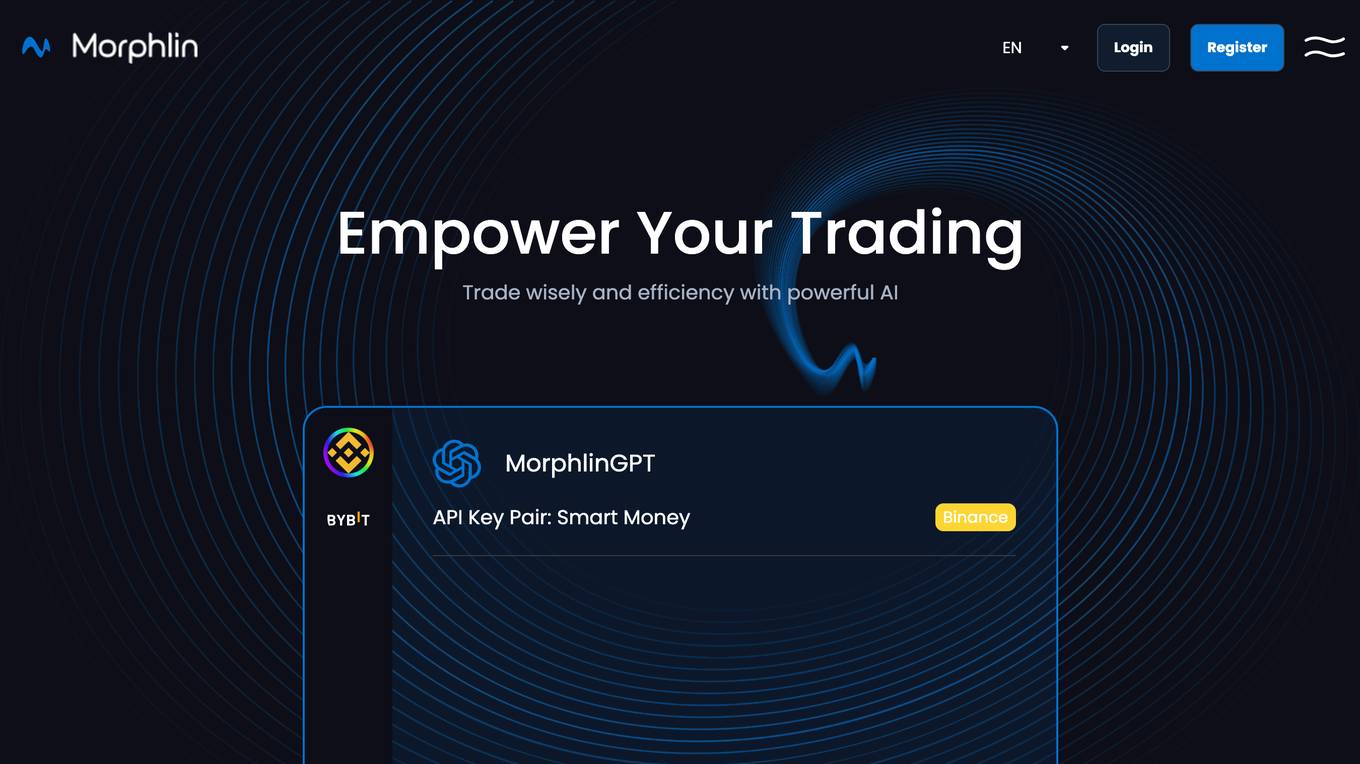
Morphlin
Morphlin is an AI-powered trading platform that empowers traders with smart tools and insights to make informed decisions. The platform offers a powerful AI MorphlinGPT API Key Pair for smart trading on Binance. Users can access real-time information, investment analysis, and professional research reports from third-party experts. Morphlin integrates data from mainstream markets and exchanges, providing clear information through a dynamic dashboard. The platform's core values include offering a good environment for researchers to share opinions and a referral program that shares 10% of Morphlin fees with community KOLs. With Morphlin, traders can trade wisely and efficiently, backed by AI technology and comprehensive market data.
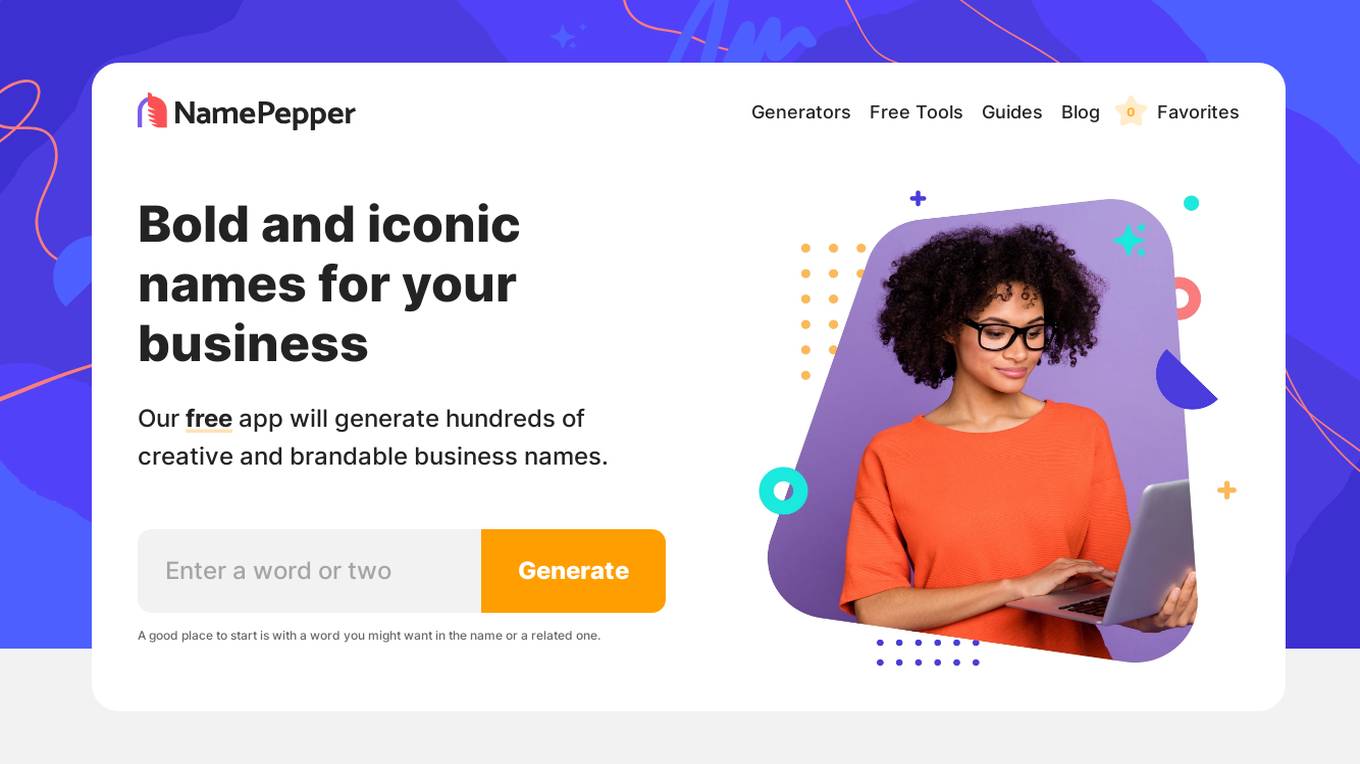
NamePepper
NamePepper is a free AI business name generator tool that helps users unlock brandable names for their businesses. The tool generates hundreds of creative and iconic business names tailored to the user's preferences and industry. Users can quickly check domain availability, save favorite names, and get feedback from others. NamePepper aims to simplify the naming process and save users time and effort in creating a memorable brand identity.

DreamStudio
DreamStudio is a cutting-edge AI-powered platform that empowers users to create stunning digital artwork and explore their creativity like never before. With its advanced algorithms and user-friendly interface, DreamStudio makes it possible for anyone to generate unique and captivating images, illustrations, and designs. Whether you're a professional artist, a hobbyist, or simply someone who appreciates the beauty of art, DreamStudio offers a transformative experience that will ignite your imagination and push the boundaries of your creativity.
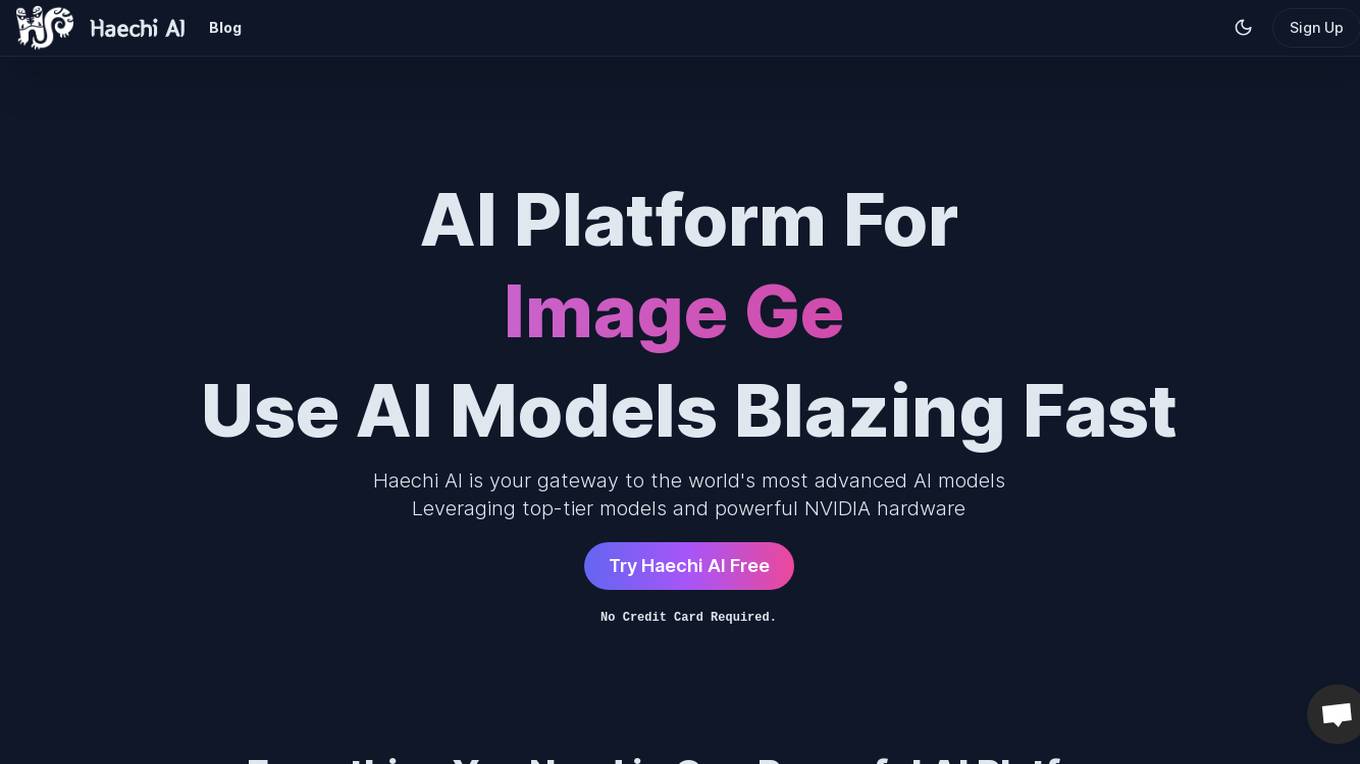
Haechi AI
Haechi AI is an all-in-one AI platform that provides access to advanced AI models for various purposes such as education, content creation, retail, development, and innovation. It offers a range of features including creating questions, completing homework, correcting grammar, writing theses, developing projects, generating images, summarizing texts, translating languages, enhancing presentations, and more. The platform is designed to empower users with powerful tools and fine-tuned models to boost efficiency and productivity in their tasks. With Haechi AI, users can leverage cutting-edge AI technology without the need for downloading or installing anything, enabling them to push the boundaries of technology effortlessly.

Lemonaide Music
Lemonaide Music is a generative AI tool for musicians that helps them generate new melodic ideas. It is designed to be artist-friendly and to help musicians push their creative boundaries. The tool is 100% royalty-free and is powered by generative AI.
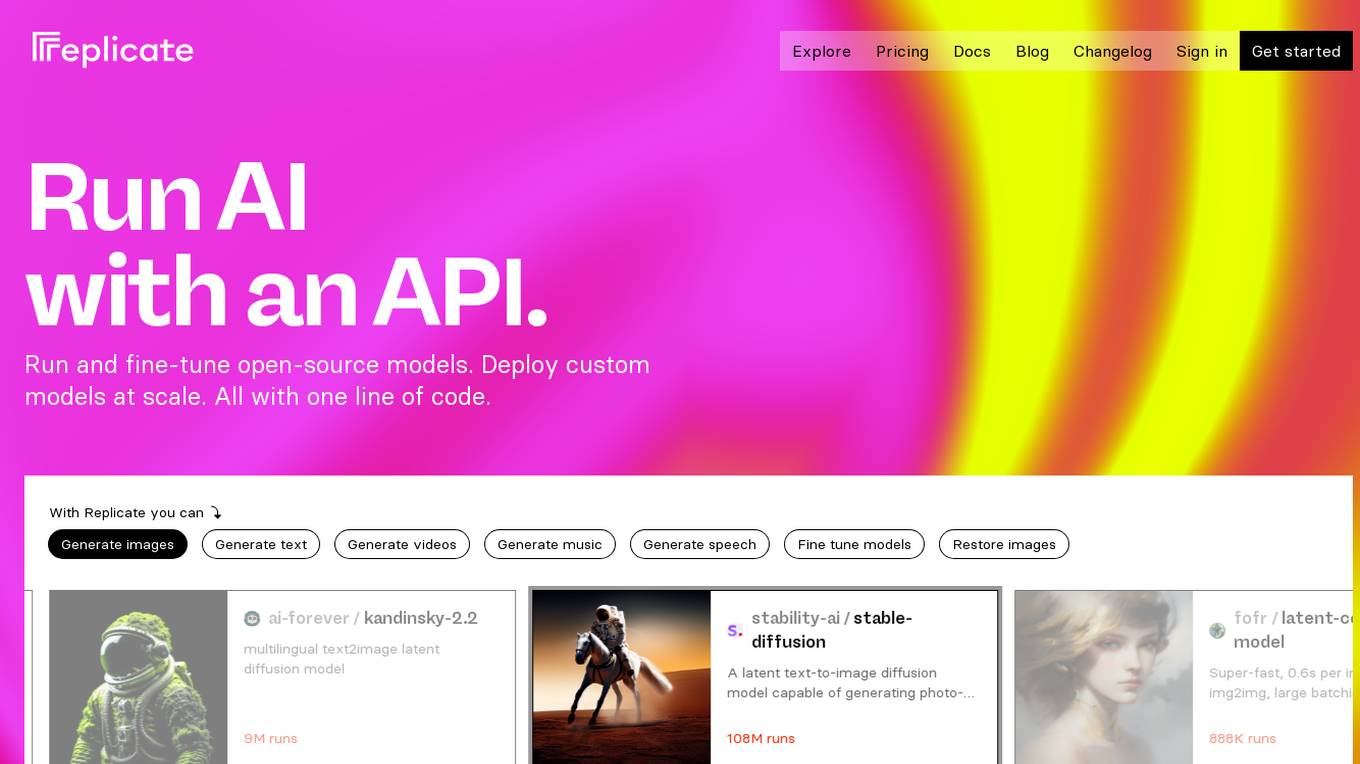
Replicate
Replicate is an AI tool that allows users to run and fine-tune open-source models, deploy custom models at scale, and generate images, text, videos, music, and speech with just one line of code. It provides a platform for the community to contribute and explore thousands of production-ready AI models, enabling users to push the boundaries of AI beyond academic papers and demos. With features like fine-tuning models, deploying custom models, and scaling on Replicate, users can easily create and deploy AI solutions for various tasks.
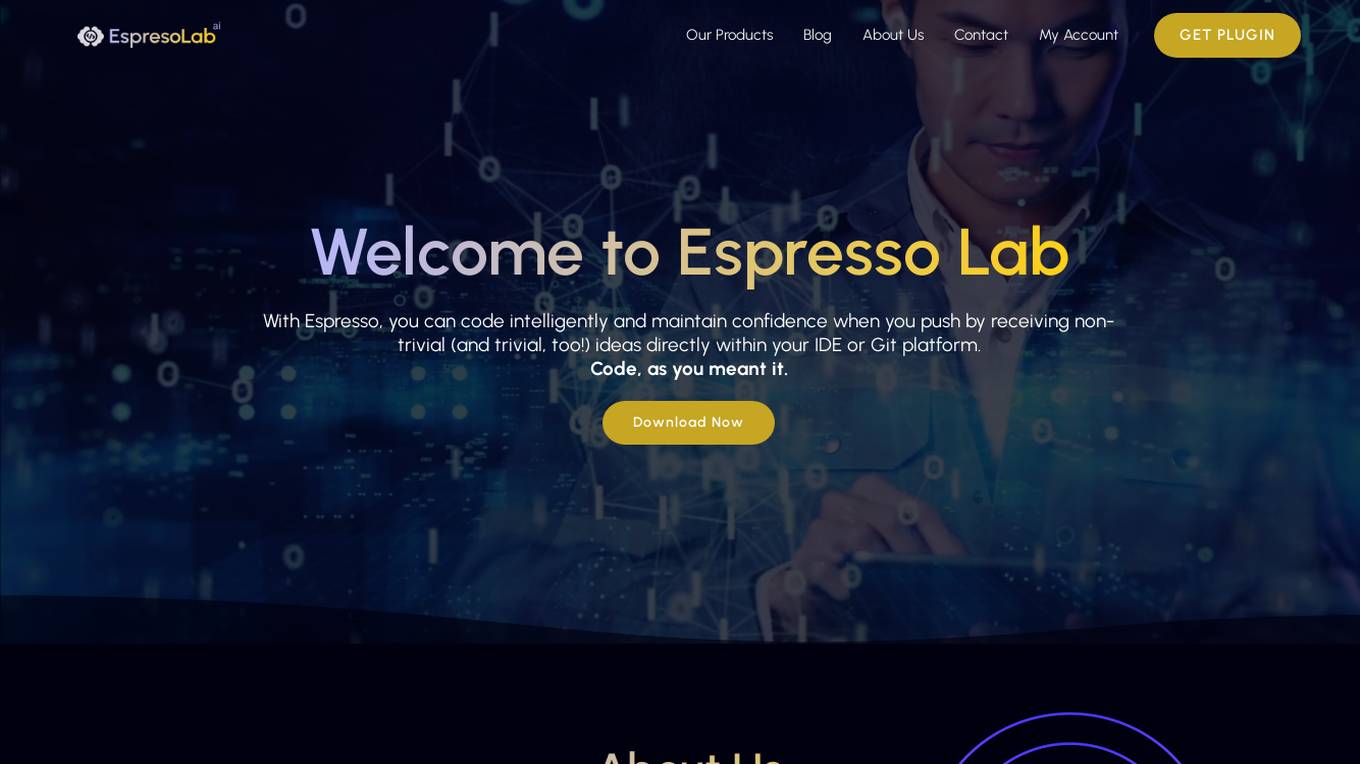
Espresso Lab
Espresso Lab is a cutting-edge AI tool designed to empower software engineers by providing AI-generated UI tests, effortless element identification, and comprehensive test cases. It leverages GPT-4 technology to streamline the QA process and enhance productivity. The tool offers flexible pricing options and innovative solutions to push the boundaries of software engineering.
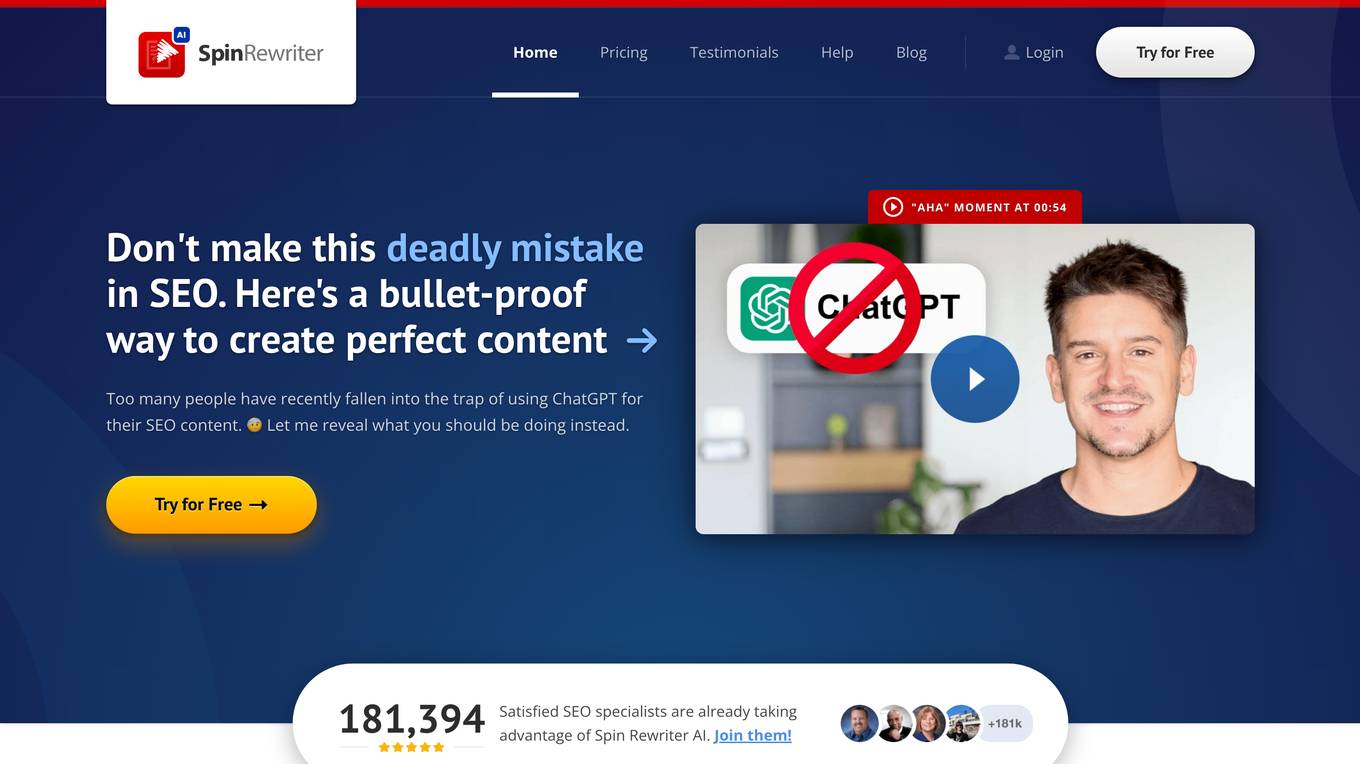
Spin Rewriter AI
Spin Rewriter AI is an article rewriter that uses artificial intelligence to generate unique, human-quality content. It is the only rewriter that uses the power of Large Language Models (LLMs) to extract the meaning of your articles on an entirely different level. This means that Spin Rewriter AI can pinpoint the meaning of every word in your article and how each word relates to every other word in its context. This allows Spin Rewriter AI to create human-quality readable articles with ZERO machine-generated footprint at a push of a button.

Floatz
Floatz is an AI tool designed for scientific research, aimed at inspiring individuals to create extraordinary things. The platform leverages artificial intelligence to assist researchers in their work, providing innovative solutions and insights to drive scientific discoveries. With a focus on creativity and imagination, Floatz empowers users to explore new possibilities and push the boundaries of knowledge in various fields of study.
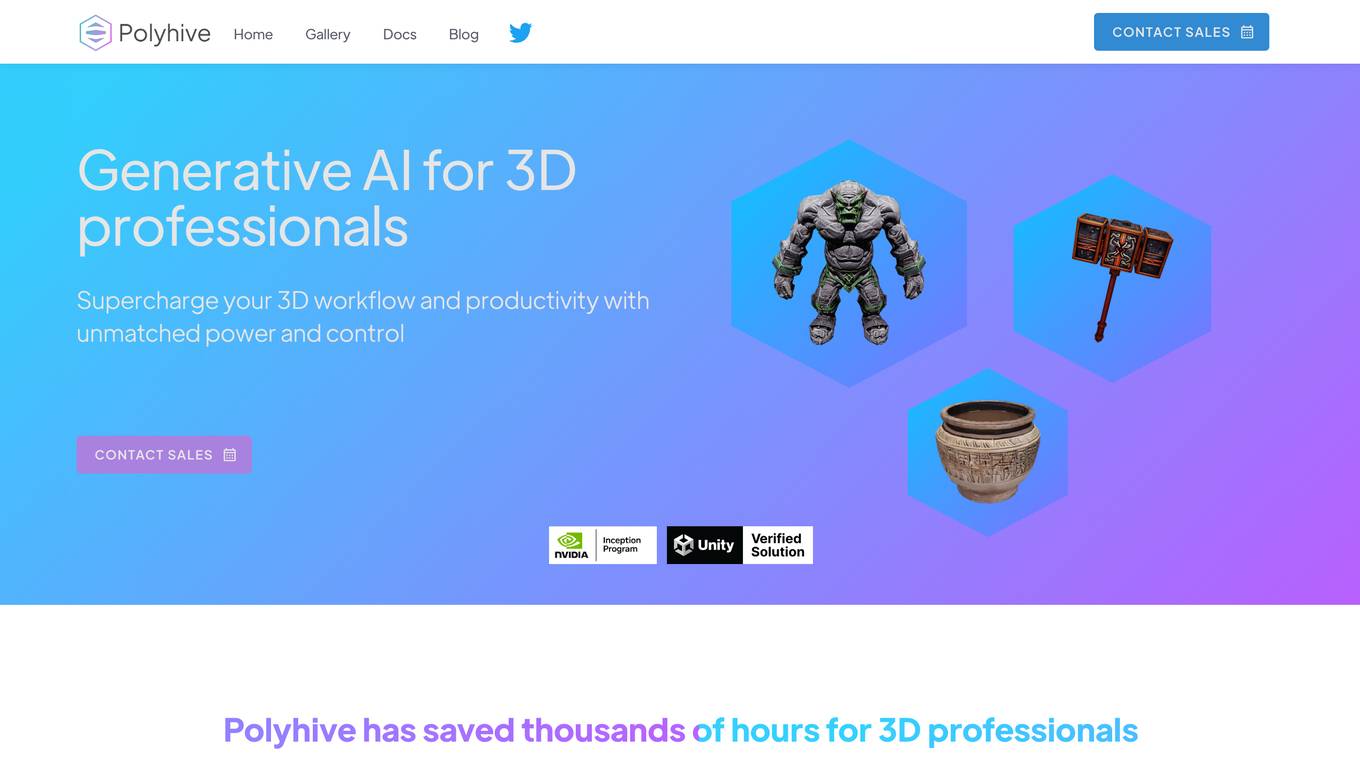
Polyhive
Polyhive is a generative AI platform that empowers 3D professionals to create high-quality 3D models, textures, and animations with unprecedented speed and ease. Its advanced algorithms and intuitive interface make it accessible to artists of all skill levels, enabling them to push the boundaries of creativity and productivity.
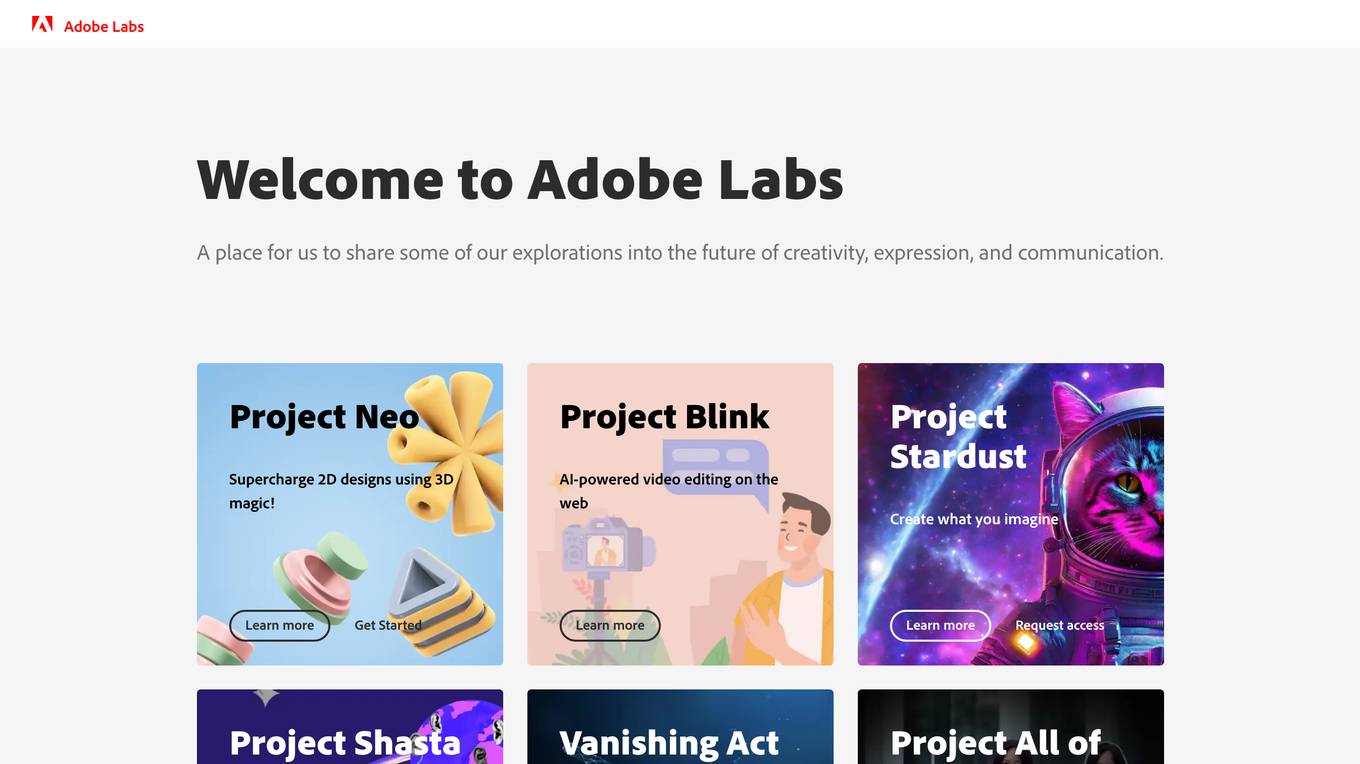
Adobe Labs
Adobe Labs is a platform where Adobe showcases its latest explorations and innovations in the fields of creativity, expression, and communication. It features a variety of projects that utilize artificial intelligence (AI) and other cutting-edge technologies to enhance creative workflows and push the boundaries of digital art and design.
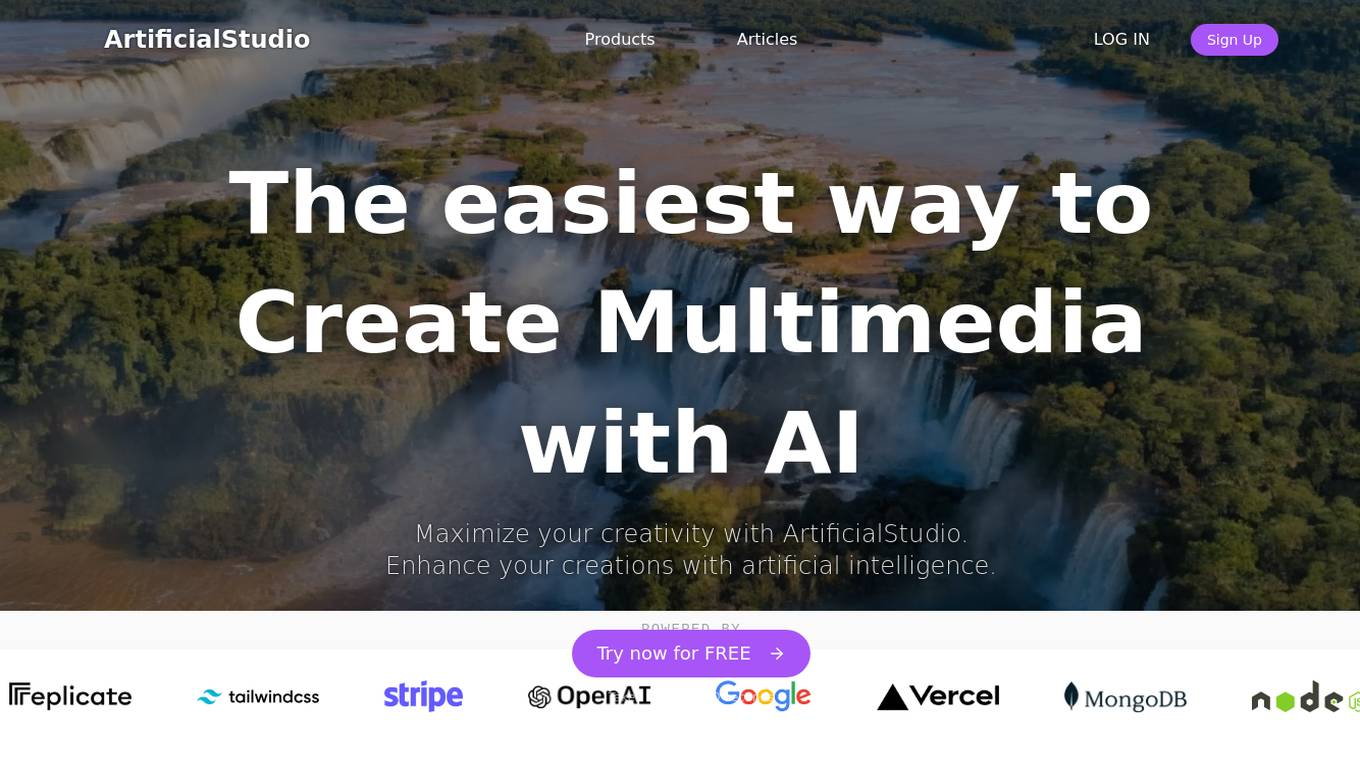
ArtificialStudio
ArtificialStudio is an AI-powered platform that enables users to create multimedia content with the help of artificial intelligence technology. The platform offers a wide range of AI models for creating images, music, text, and videos, all in one place. Users can enhance their creativity and push the limits of what they can achieve by leveraging the power of AI. With a user-friendly interface and quick setup process, ArtificialStudio is designed to maximize user creativity and efficiency in content creation.

Chimp Rewriter
Chimp Rewriter is an article rewriter that uses artificial intelligence and natural language processing to rewrite content quickly and effectively. It can spin or rewrite content in seconds, create complex, original content, rewrite in multiple languages, create articles at the push of a button, grab existing articles, images, and videos, and more. Chimp Rewriter comprehends content more effectively than low-cost writers and can integrate with other content creation suites and SEO tools.
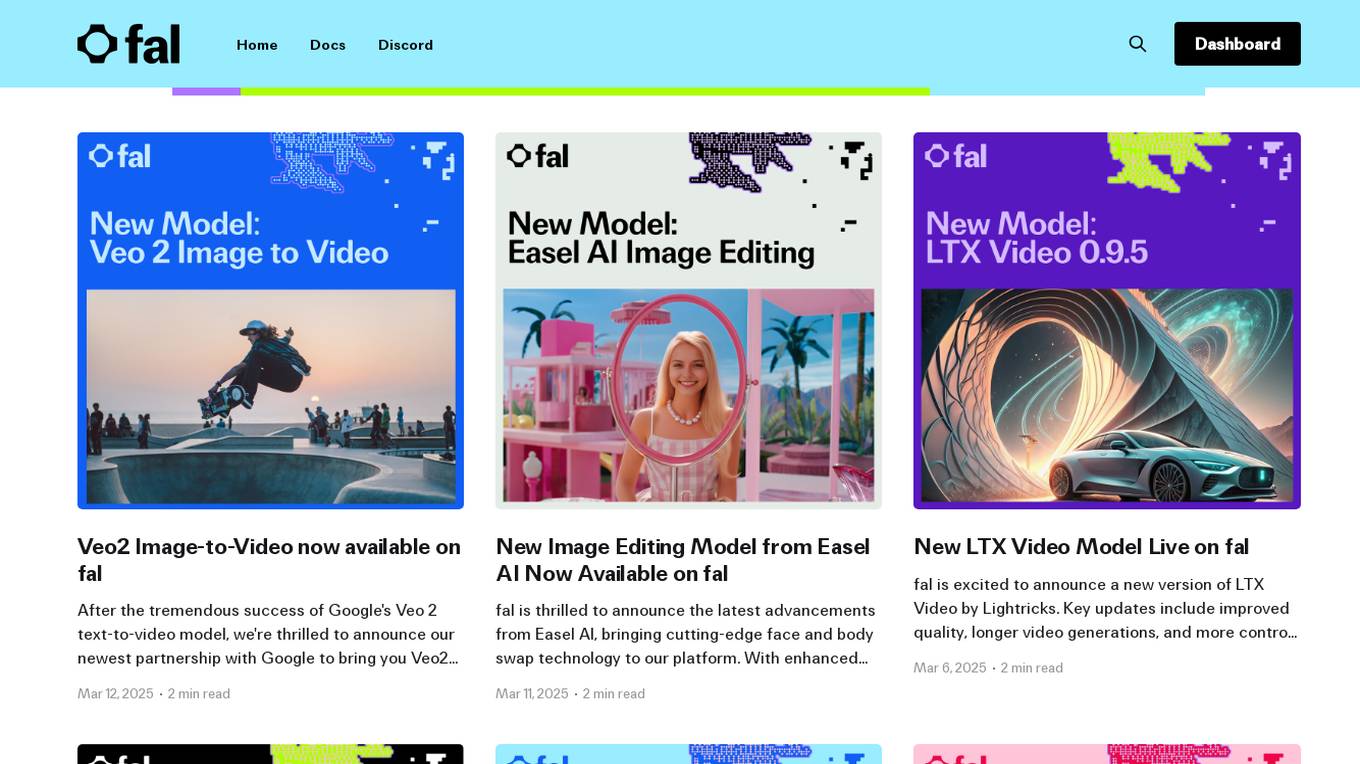
fal
fal is an AI platform that offers cutting-edge AI models and tools for image and video generation, editing, and audio processing. It partners with leading AI companies to bring state-of-the-art technology to its users, enabling them to create stunning visual and audio content with ease. fal is at the forefront of the AI-driven media creation revolution, providing developers and creators with advanced tools to push the boundaries of creativity.
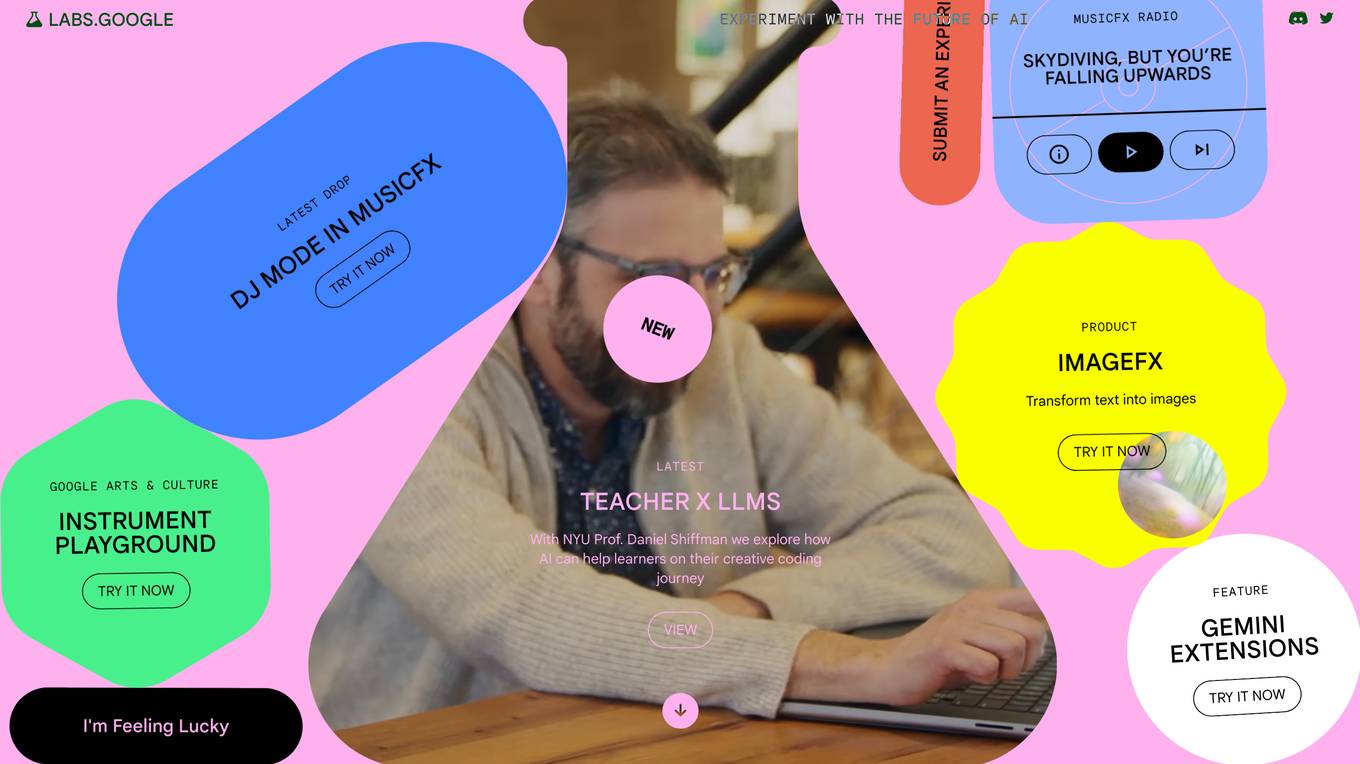
Google Labs
Google Labs is a platform for AI experiments and applications developed by Google. It features a variety of experimental tools and prototypes that showcase the capabilities of AI technology. Users can explore projects like Project Astra, Whisk, Talking Tours, Daily Listen, and more, each offering unique ways to interact with AI. The platform also hosts lab sessions, community events, and collaborations with artists, musicians, journalists, and educators to push the boundaries of creativity and innovation through AI.
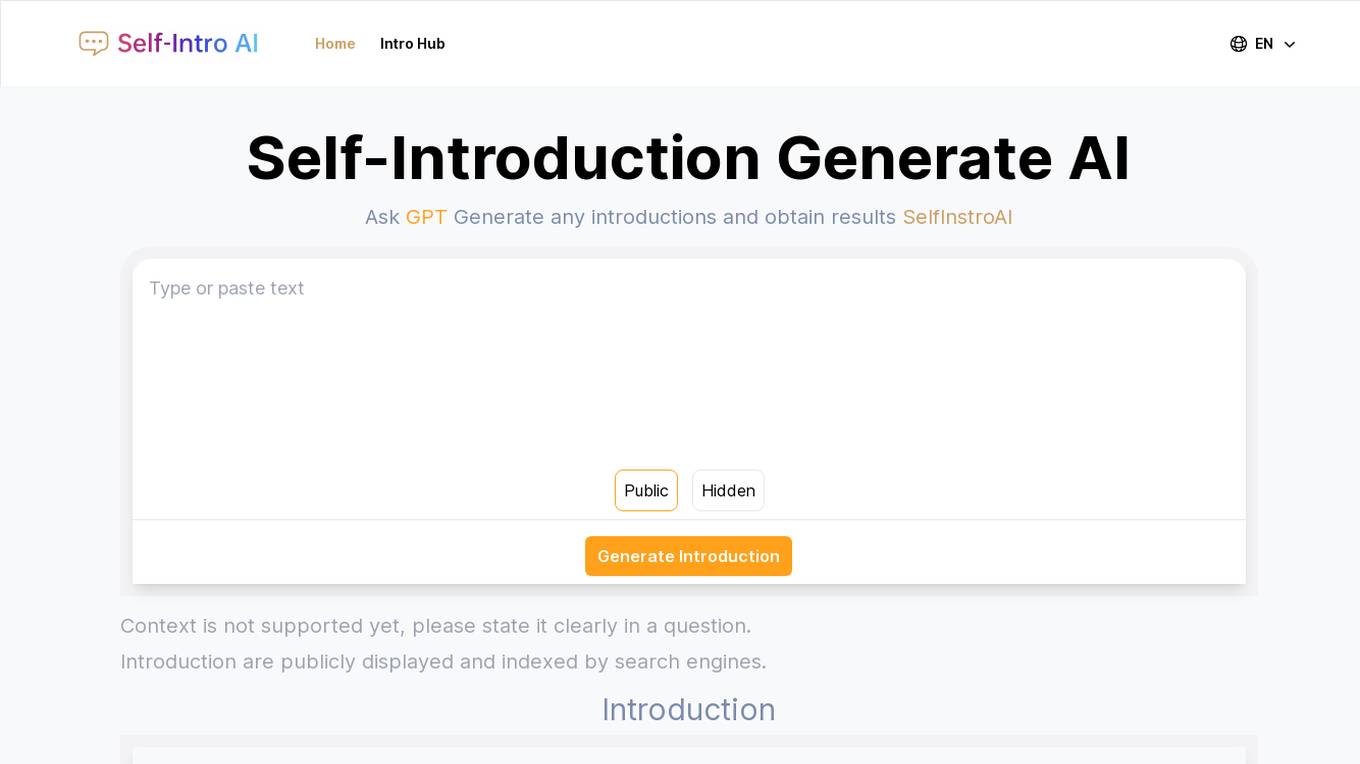
Self-Introduction Generate AI
Self-Introduction Generate AI is an innovative platform designed to assist individuals and businesses in crafting compelling and effective self-introductions. It leverages advanced AI technology to understand context and generate personalized content. The platform can analyze and understand various types of input, including text and context, to generate tailored self-introductions that are engaging and informative, enhancing personal and professional branding. With features like quick response times, quality assurance, and specialized service for self-introductions, it is an ideal tool for job applications, networking events, and personal branding initiatives.
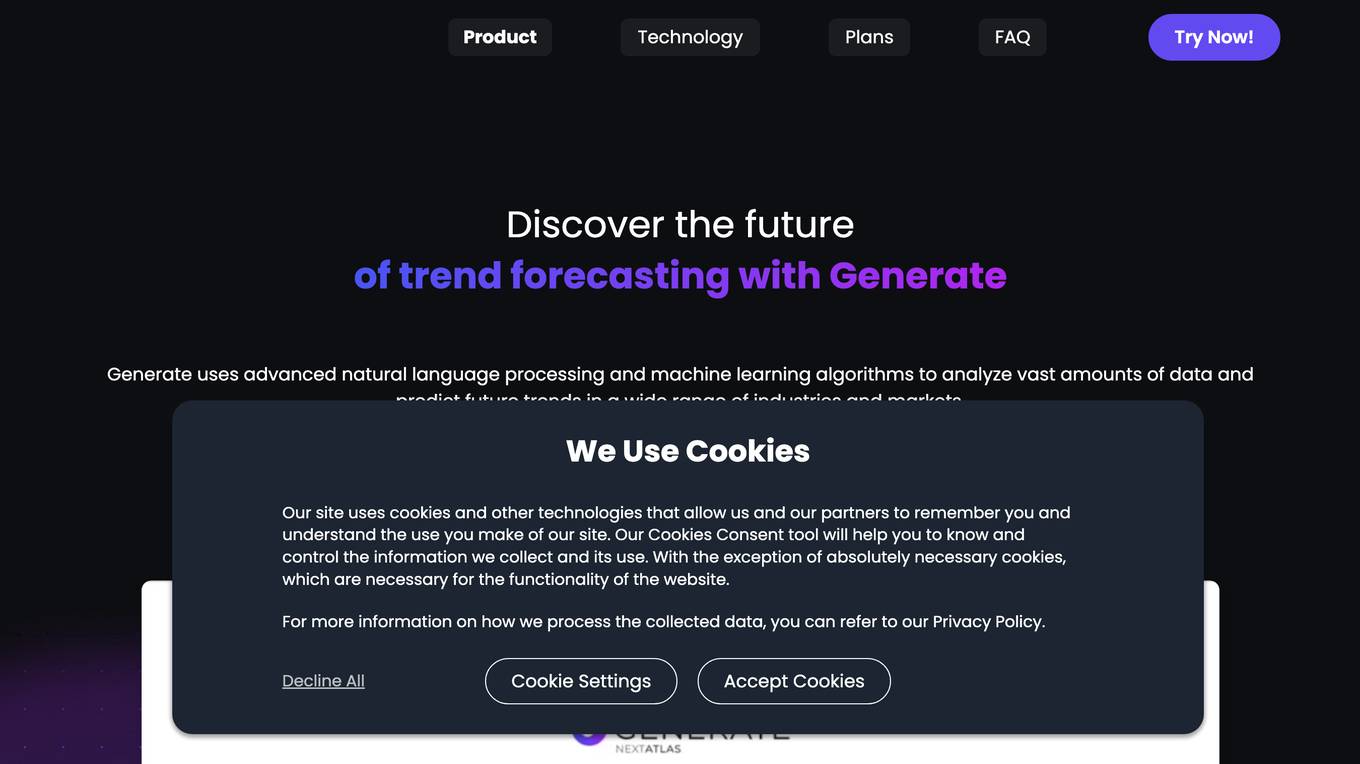
Nextatlas Generate
Nextatlas Generate is an AI-powered generative trend forecasting service that provides deep insights into market trends and consumer behavior. It leverages cutting-edge AI technology to offer specialized assistants for market research, innovation scouting, brand strategy, and more. The service analyzes real-time social media data, online content, and various sources to uncover emerging trends, consumer behaviors, and business cases. Nextatlas Generate Suite is designed to help businesses make data-driven decisions and stay ahead in their industries.
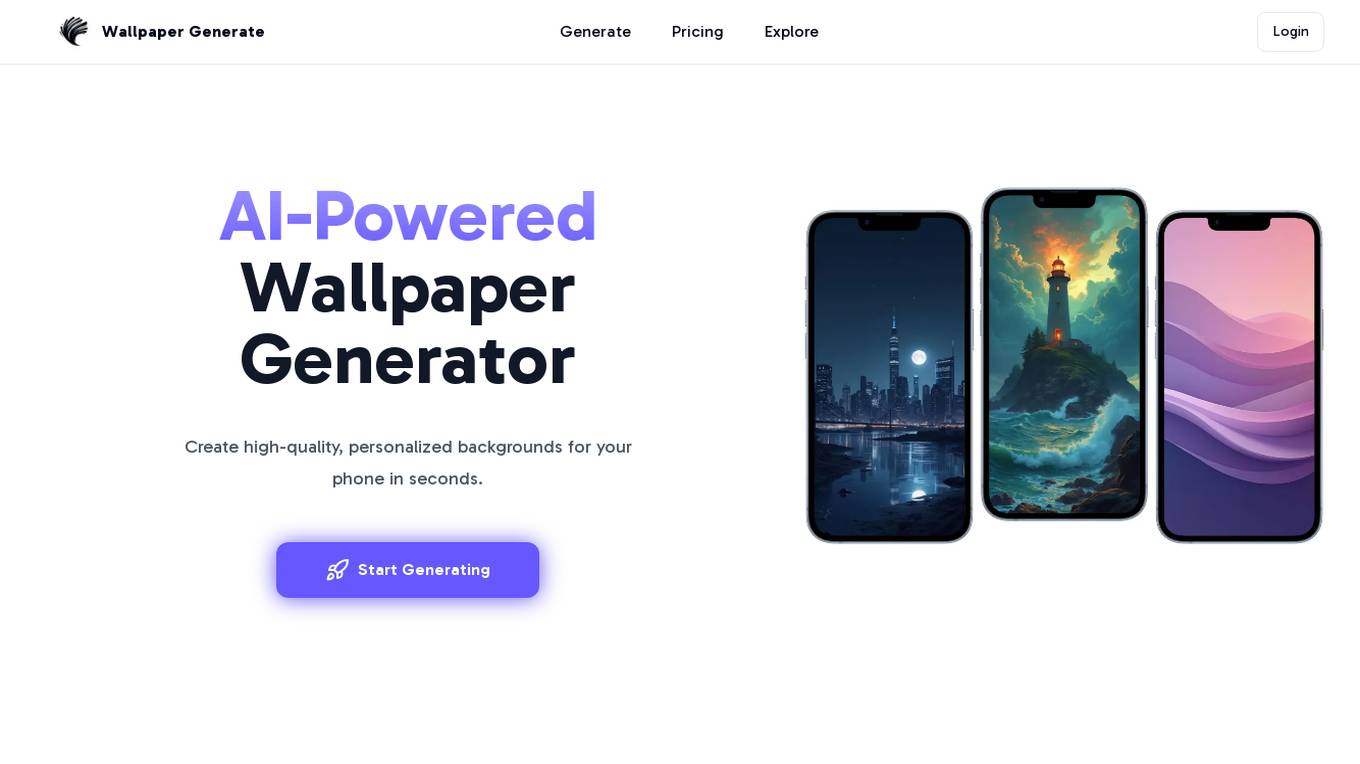
Wallpaper Generate
Wallpaper Generate is an AI-powered tool that allows users to create high-quality, personalized backgrounds for their phones in seconds. The platform offers a range of exceptional wallpaper styles, from nature and abstract to retro and vintage designs. Users can easily design and customize wallpapers by sharing their vision with the AI, selecting a style, and customizing colors. Wallpaper Generate provides infinite wallpaper possibilities, seamless creation process, high-quality designs, user-friendly design experience, stunning visual quality, and organized cloud storage integration.
0 - Open Source AI Tools
20 - OpenAI Gpts
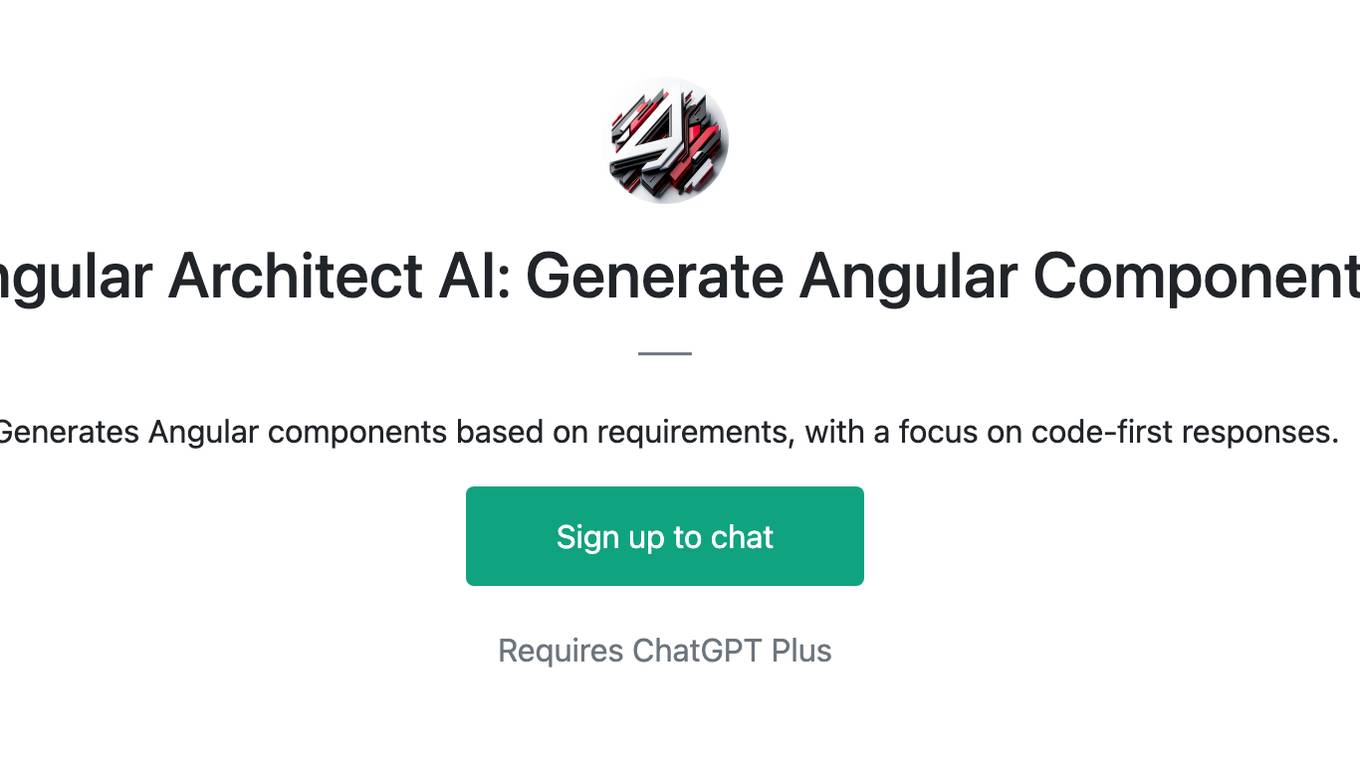
Angular Architect AI: Generate Angular Components
Generates Angular components based on requirements, with a focus on code-first responses.
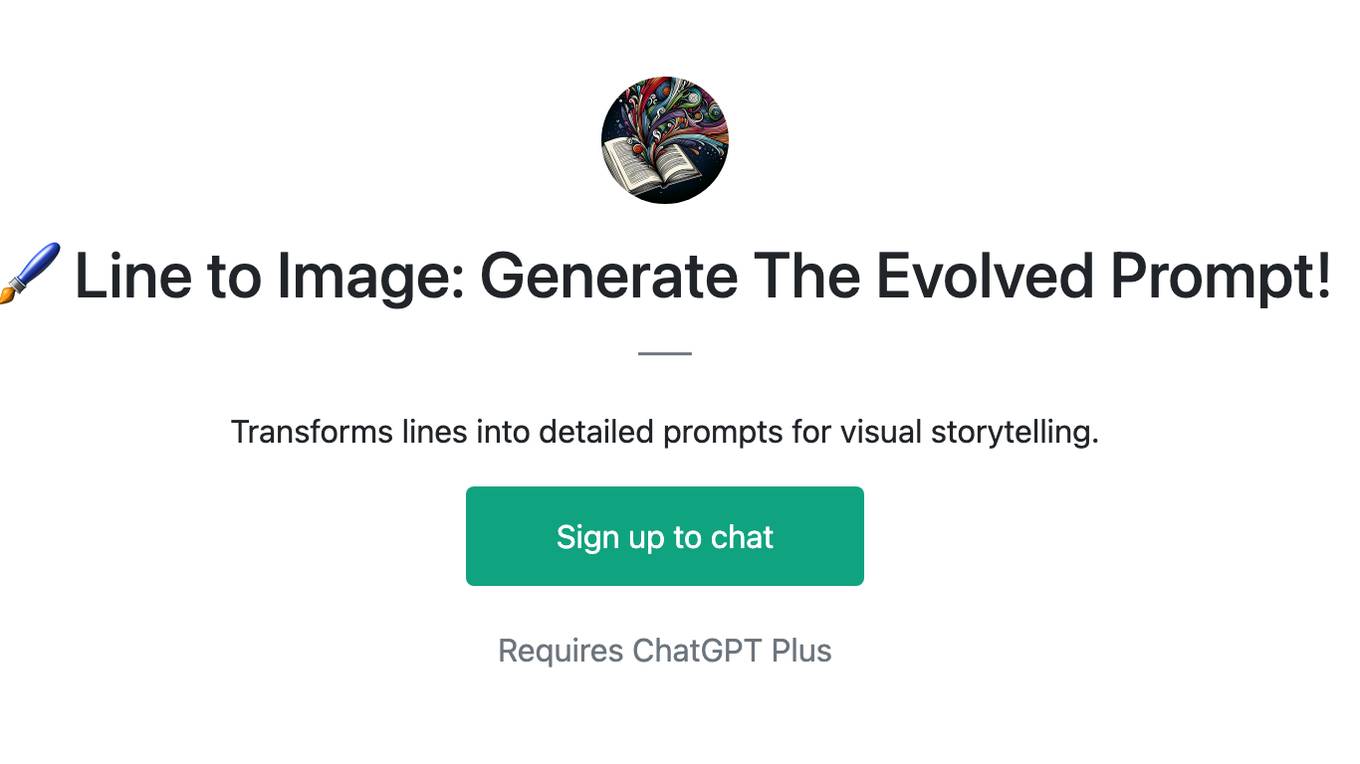
🖌️ Line to Image: Generate The Evolved Prompt!
Transforms lines into detailed prompts for visual storytelling.
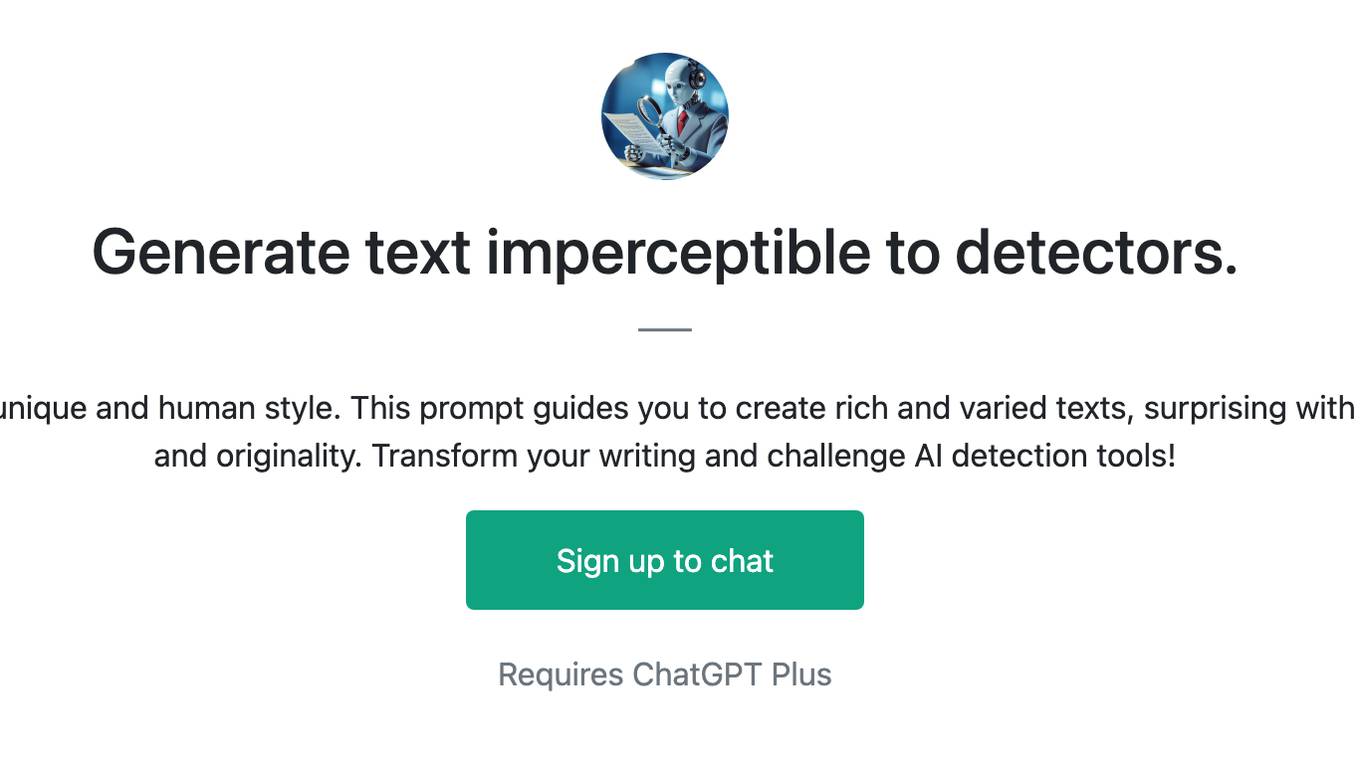
Generate text imperceptible to detectors.
Discover how your writing can shine with a unique and human style. This prompt guides you to create rich and varied texts, surprising with original twists and maintaining coherence and originality. Transform your writing and challenge AI detection tools!
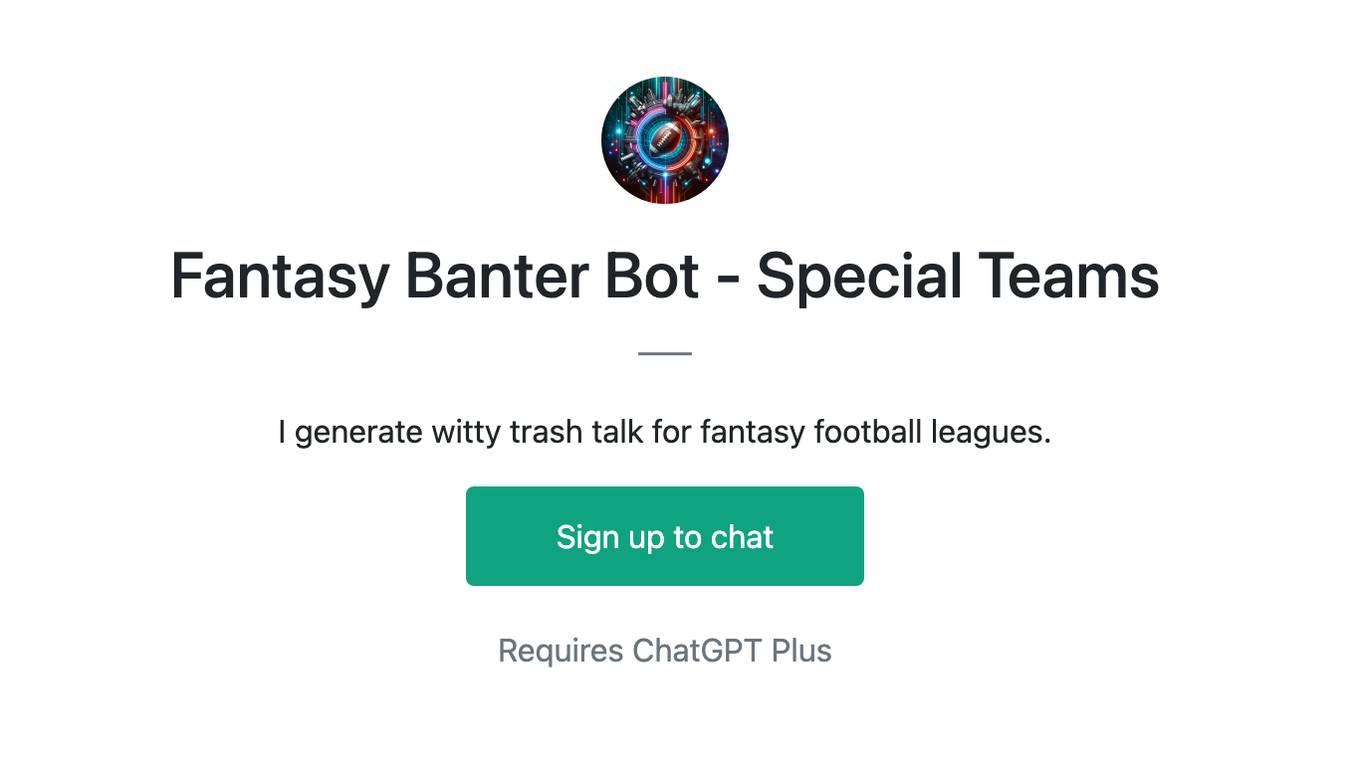
Fantasy Banter Bot - Special Teams
I generate witty trash talk for fantasy football leagues.
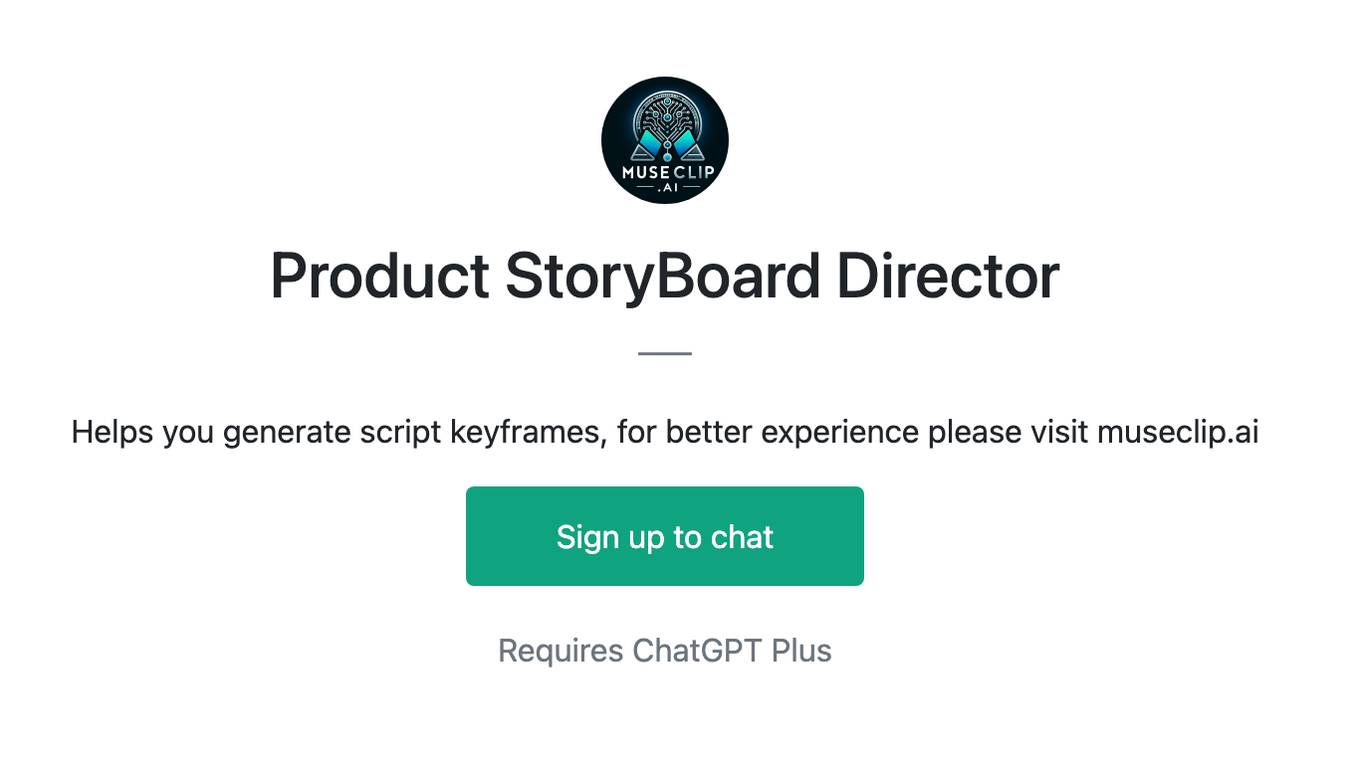
Product StoryBoard Director
Helps you generate script keyframes, for better experience please visit museclip.ai
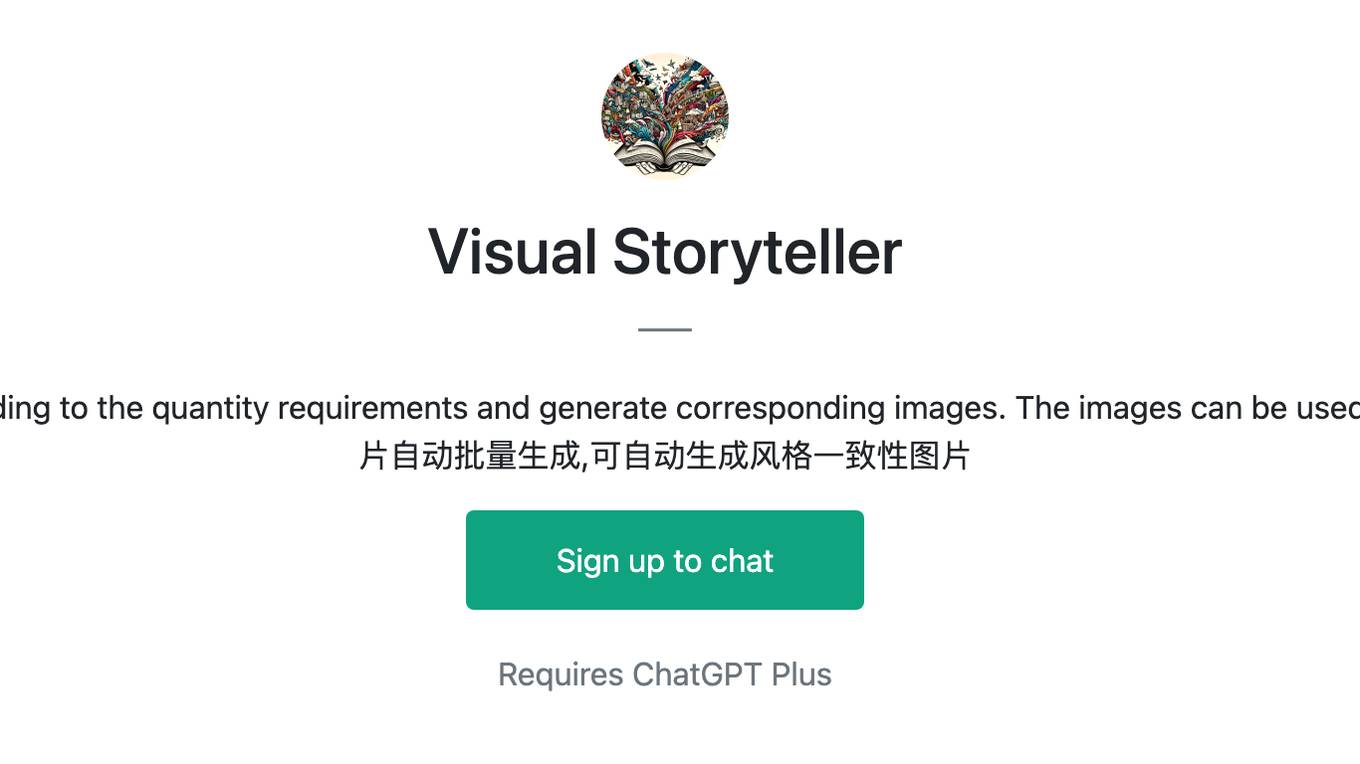
Visual Storyteller
Extract the essence of the novel story according to the quantity requirements and generate corresponding images. The images can be used directly to create novel videos.小说推文图片自动批量生成,可自动生成风格一致性图片
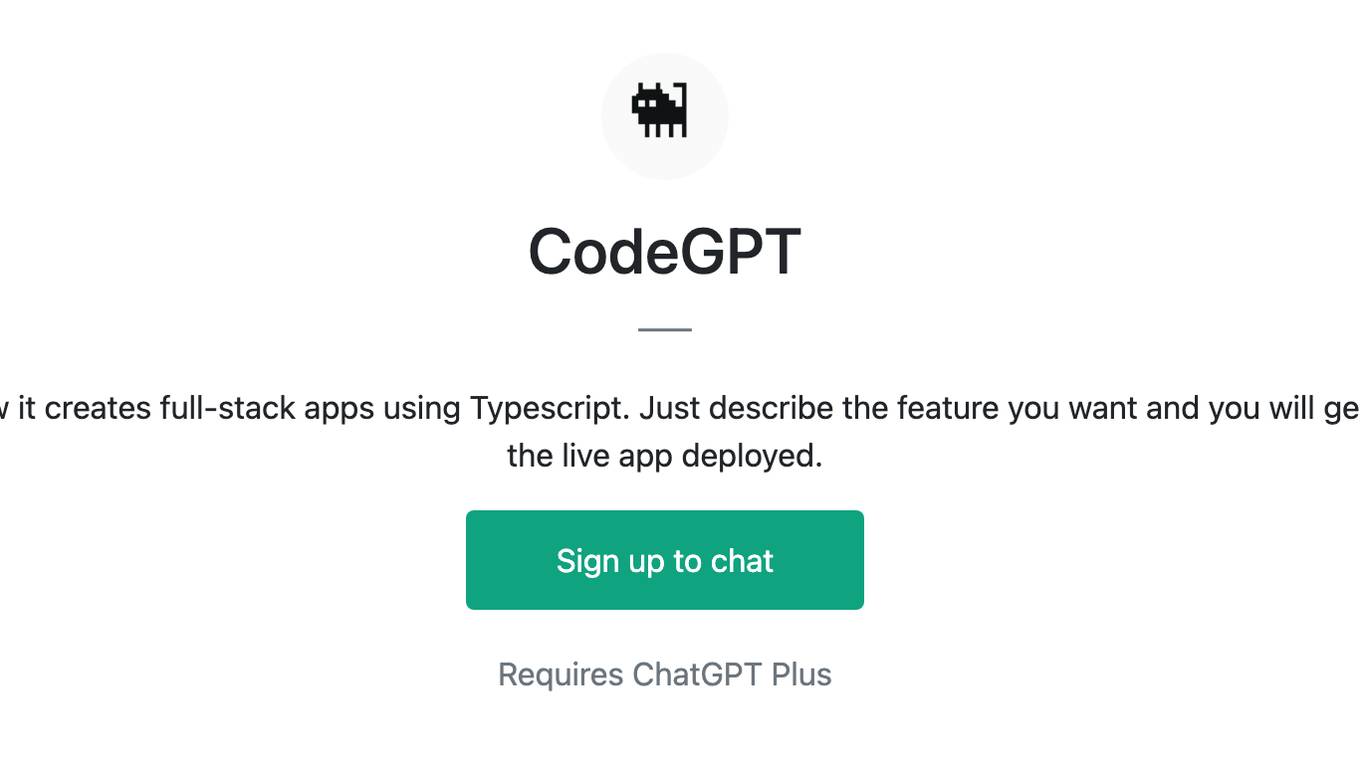
CodeGPT
This GPT can generate code for you. For now it creates full-stack apps using Typescript. Just describe the feature you want and you will get a link to the Github code pull request and the live app deployed.
